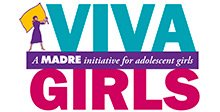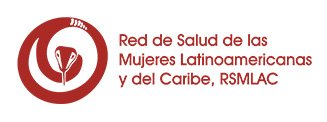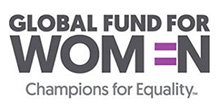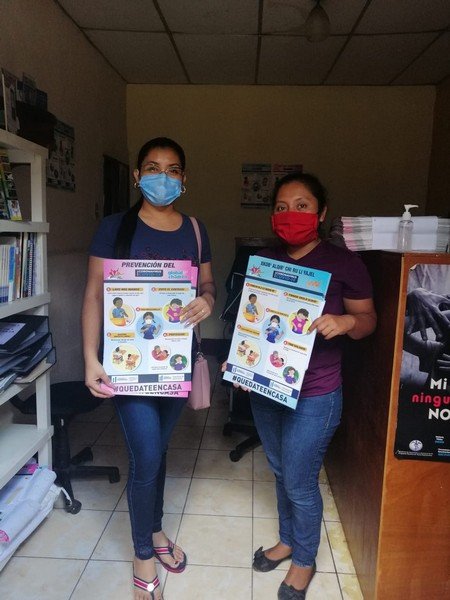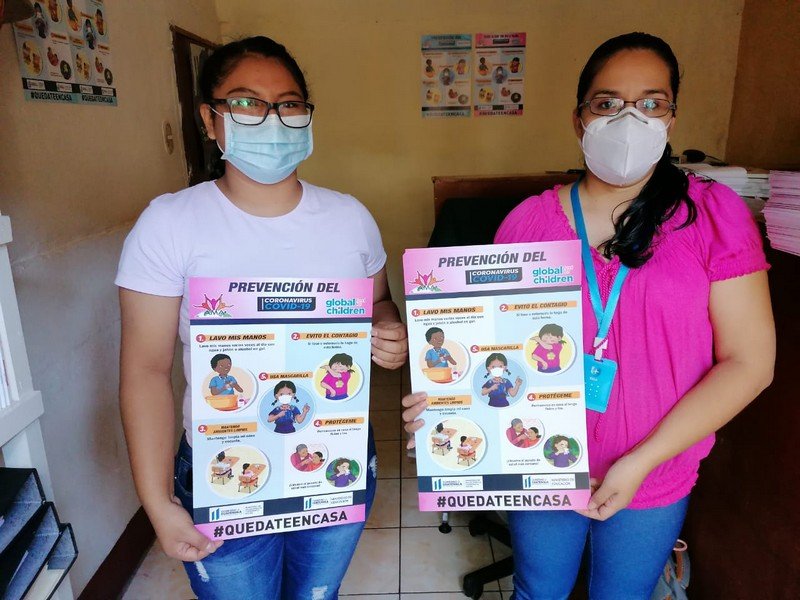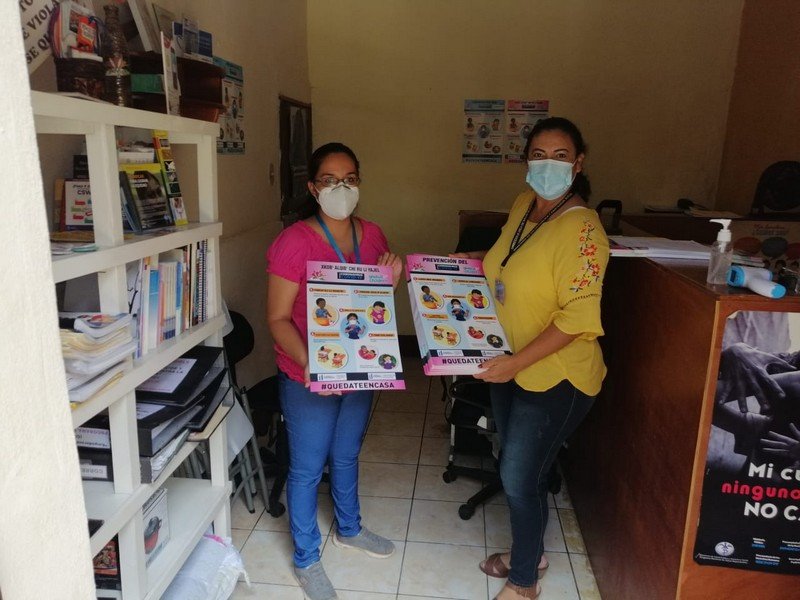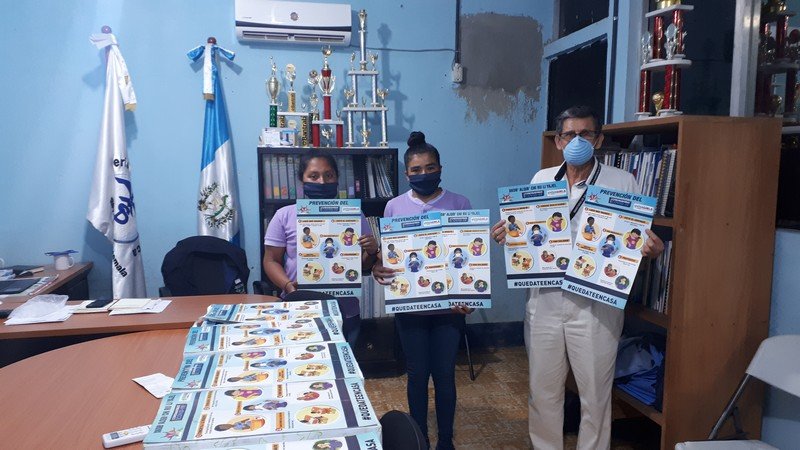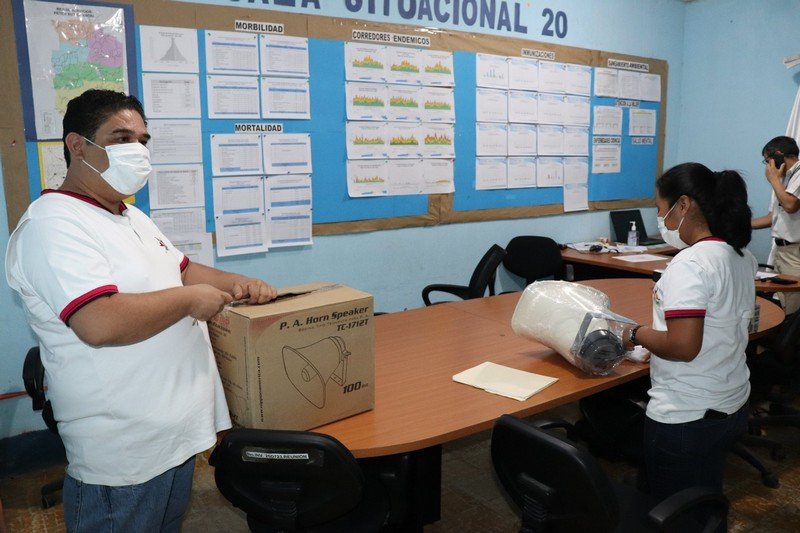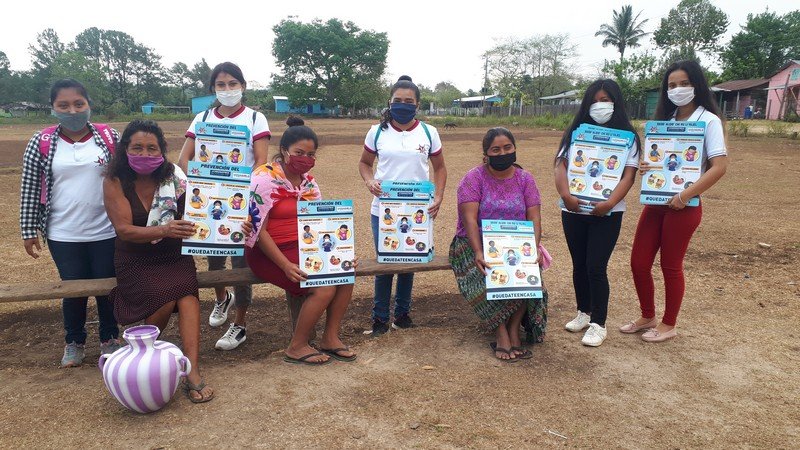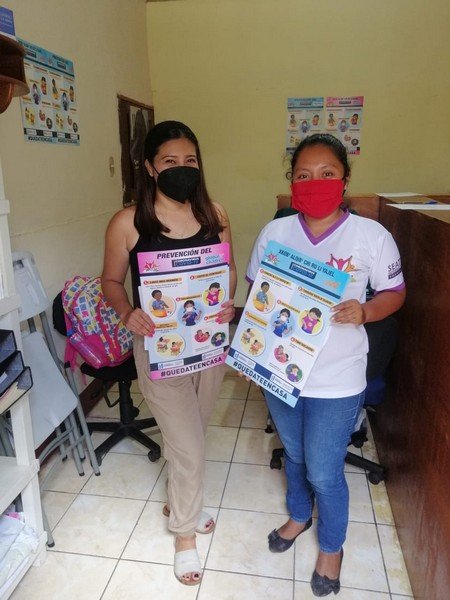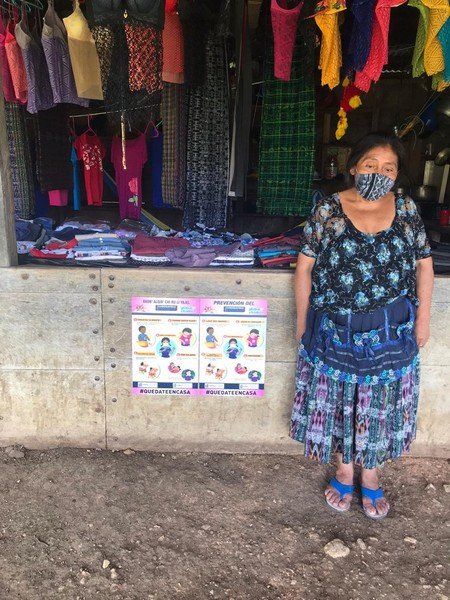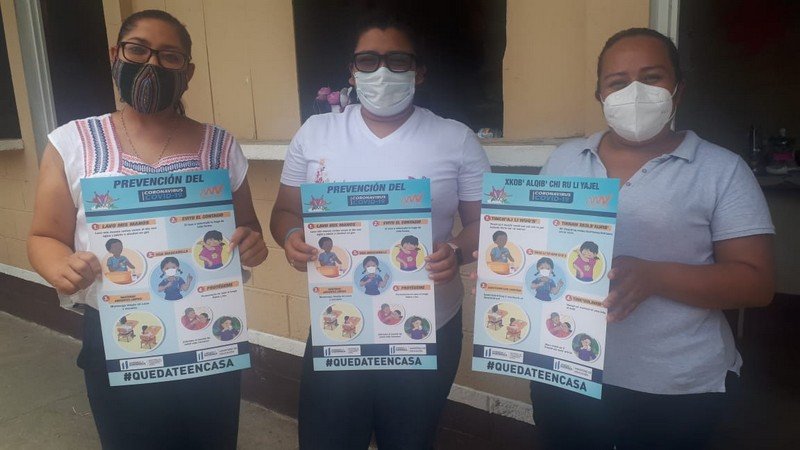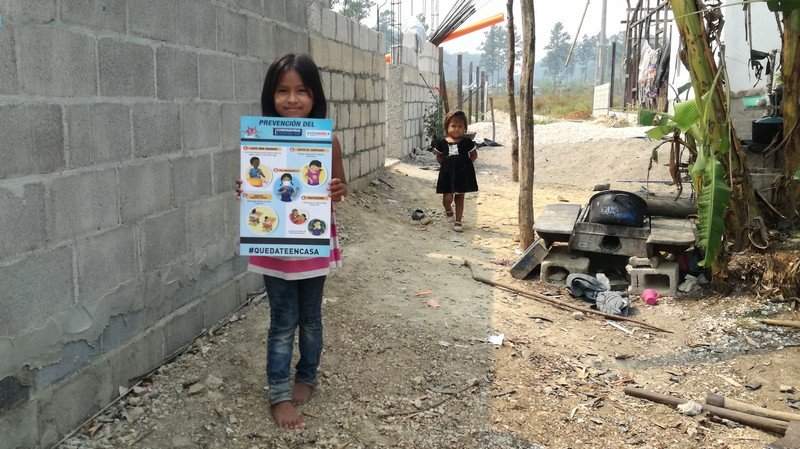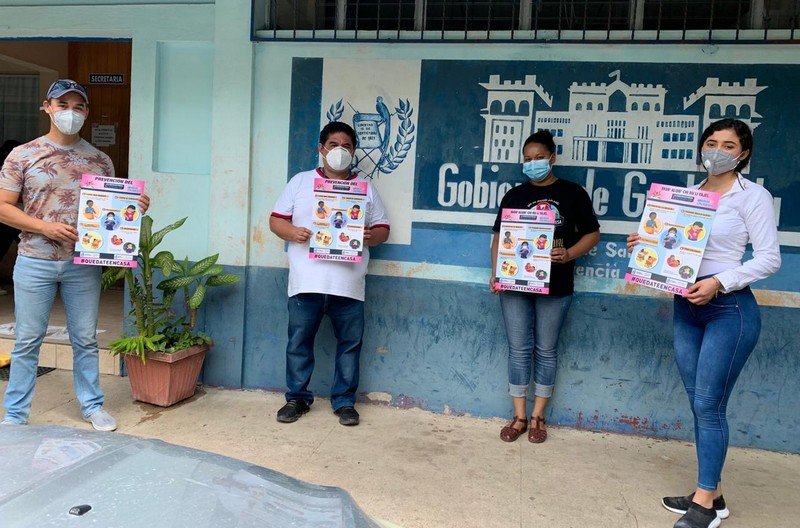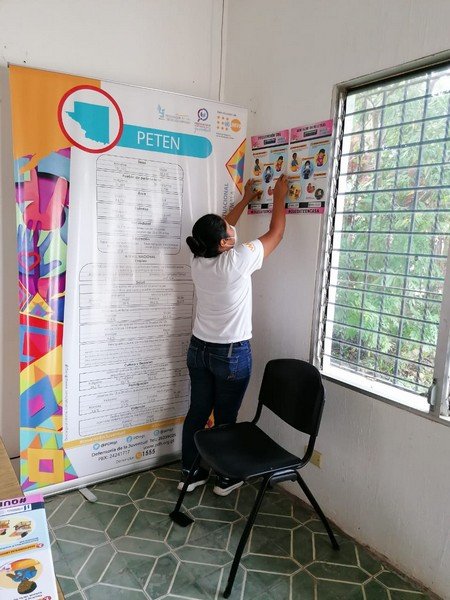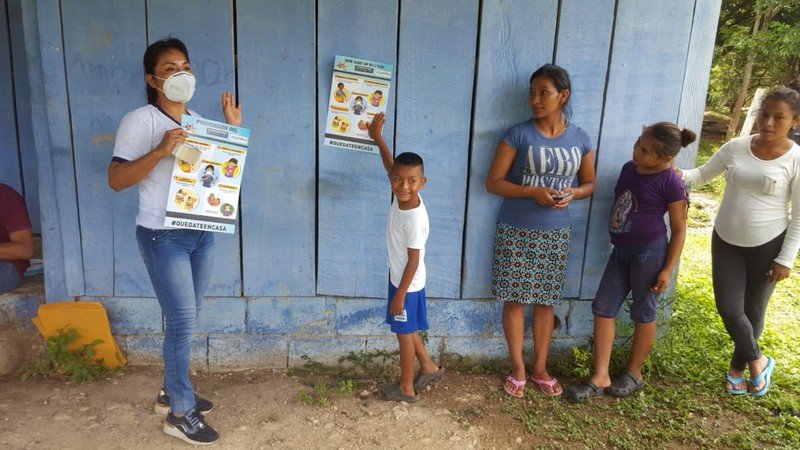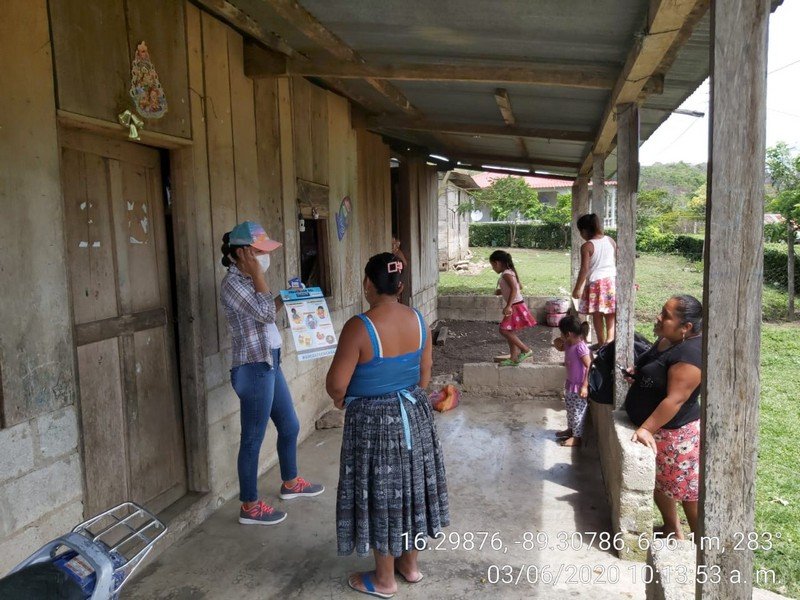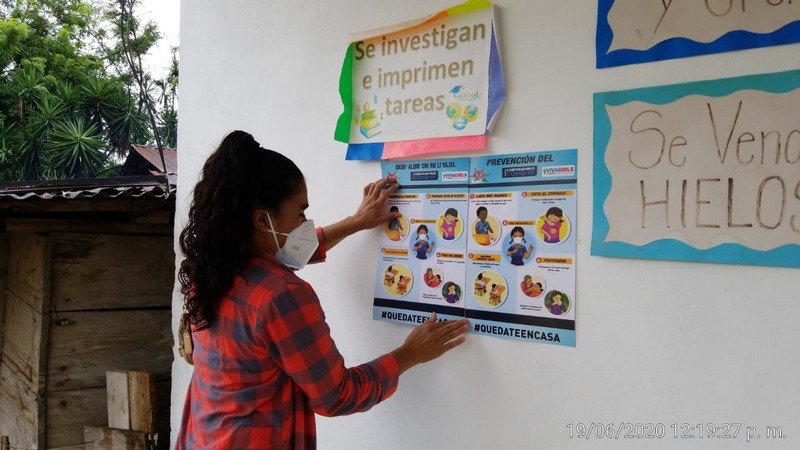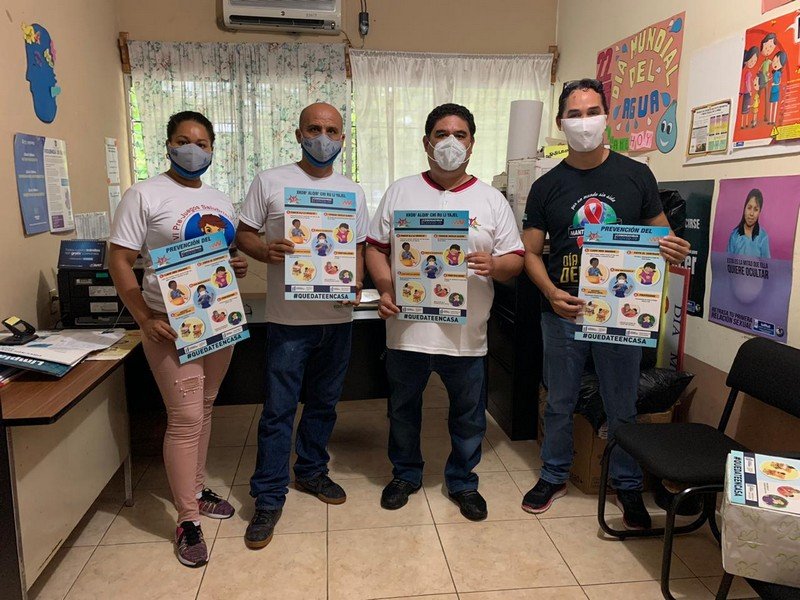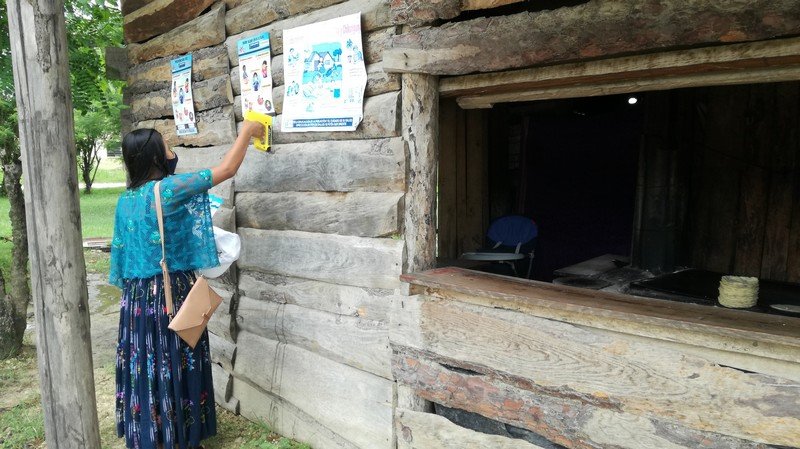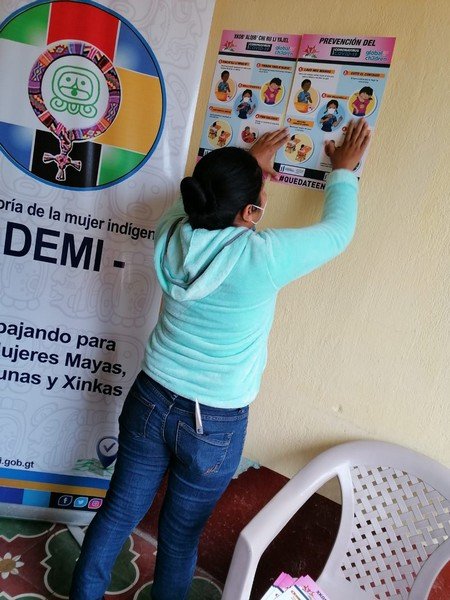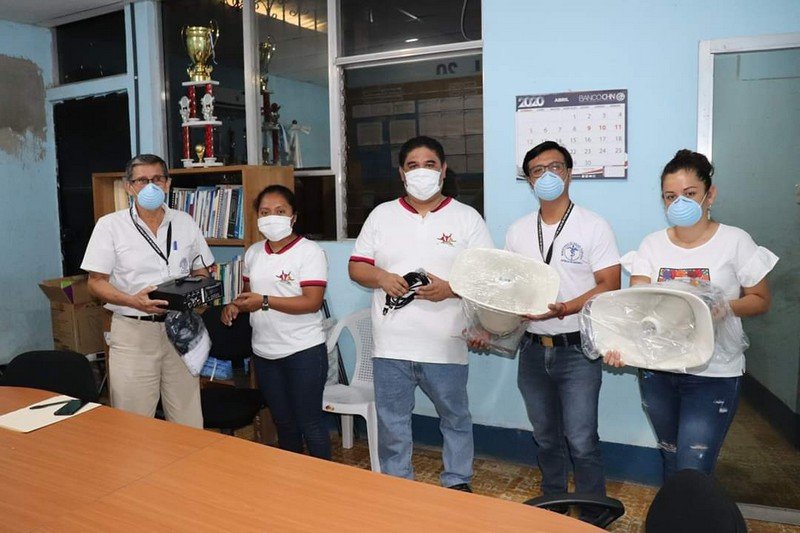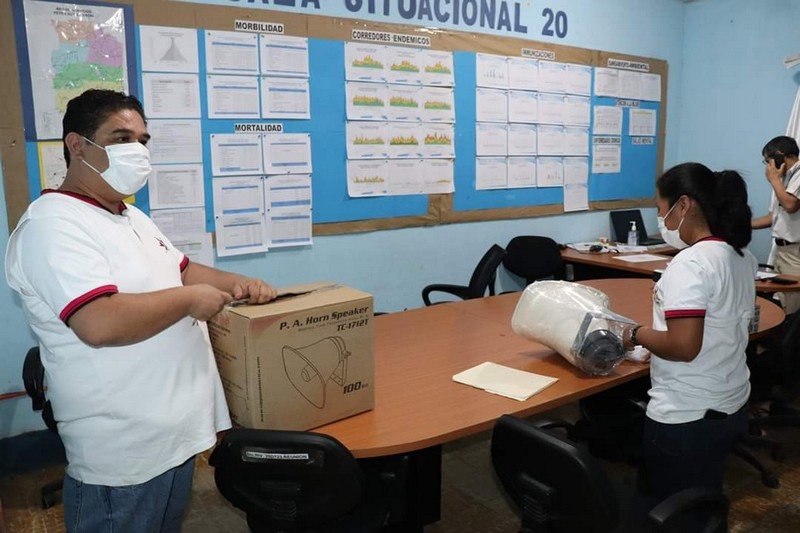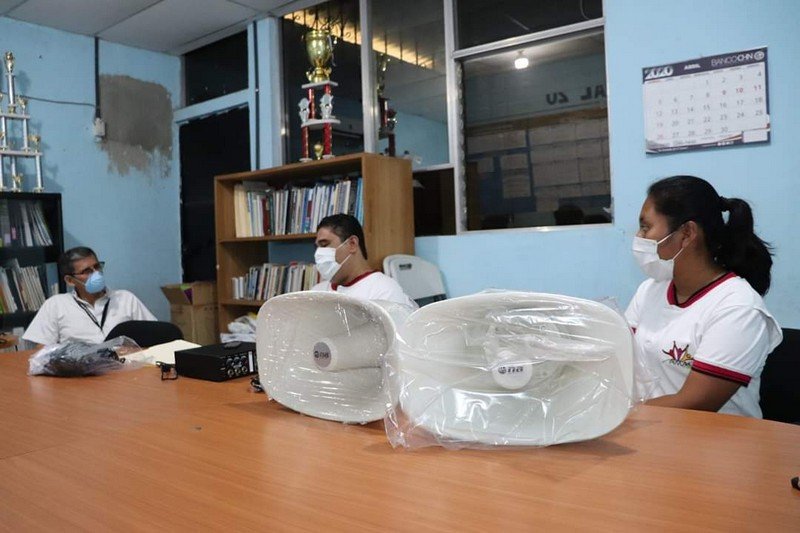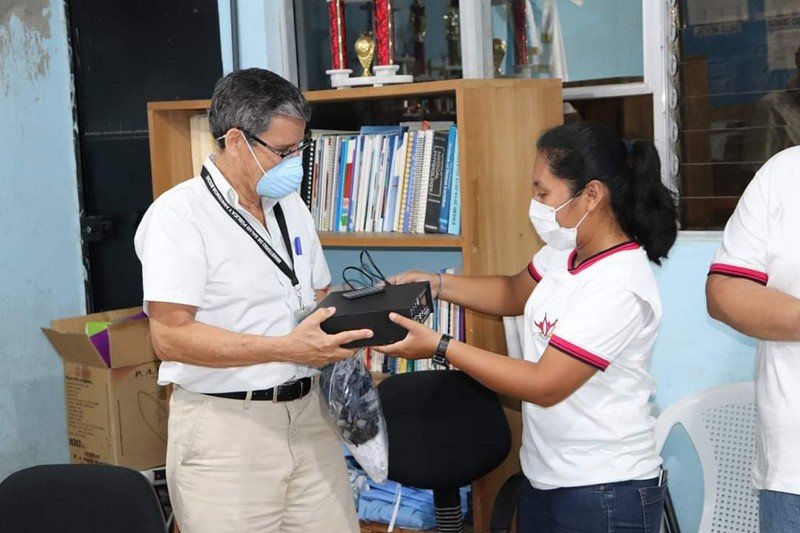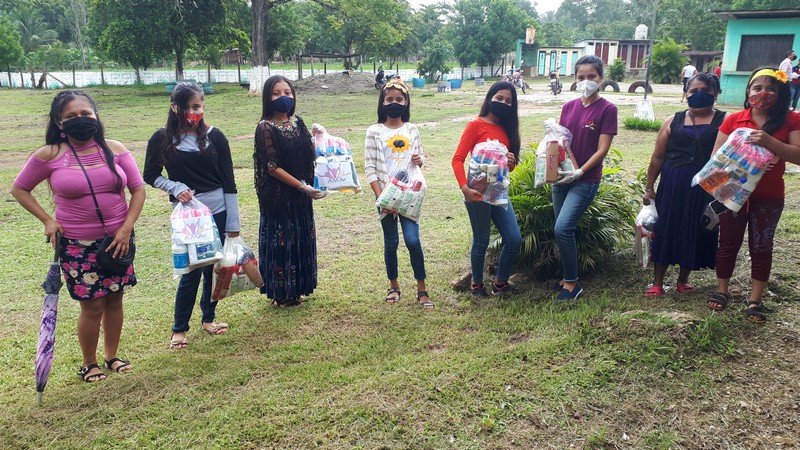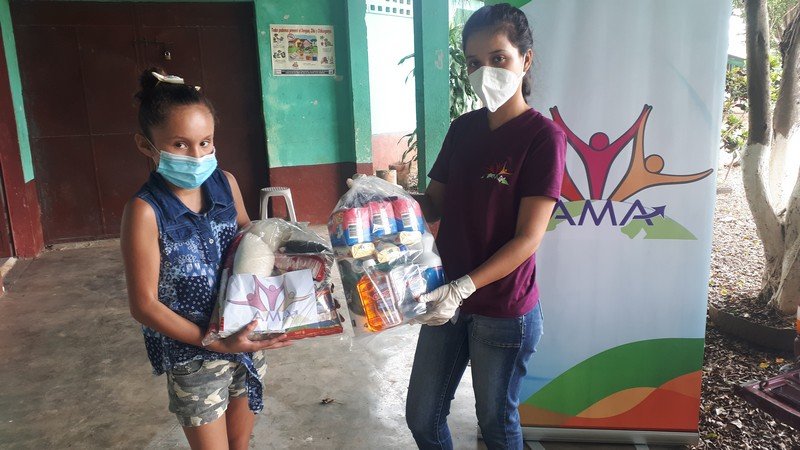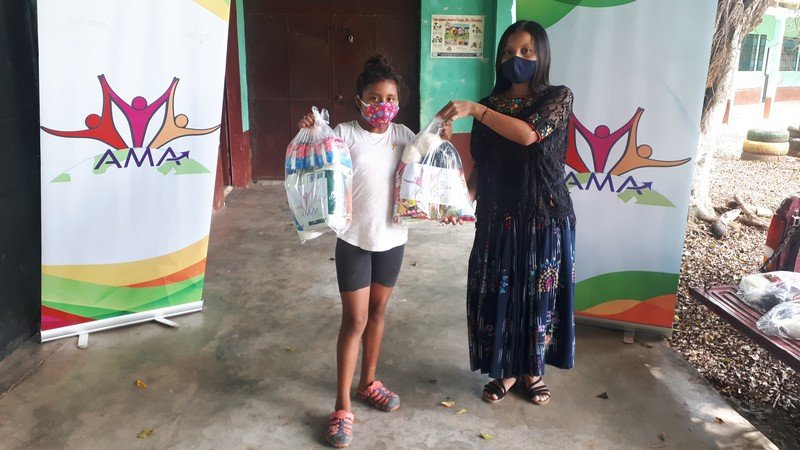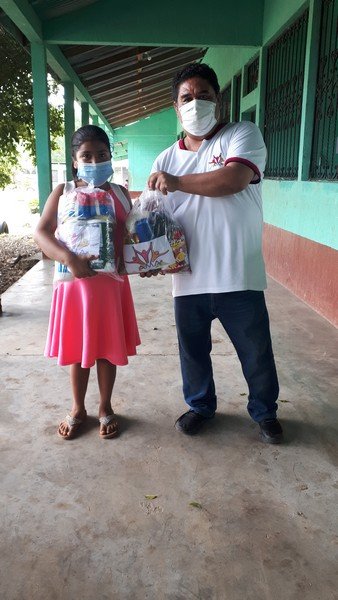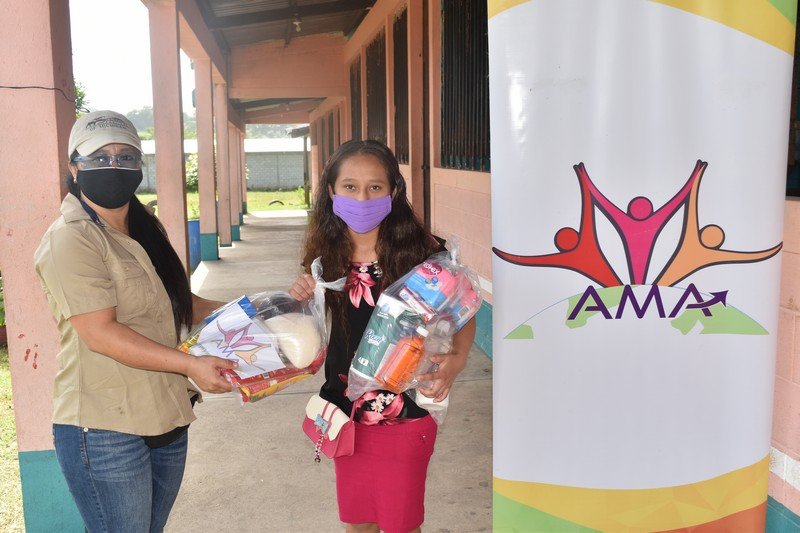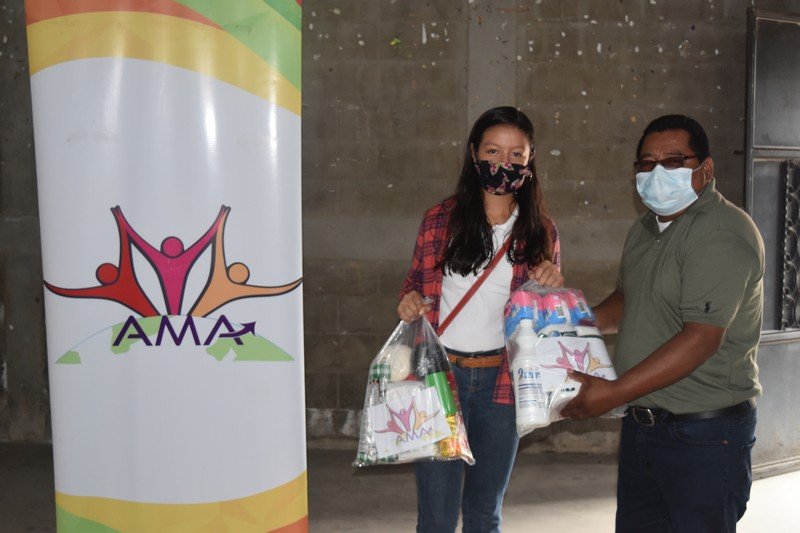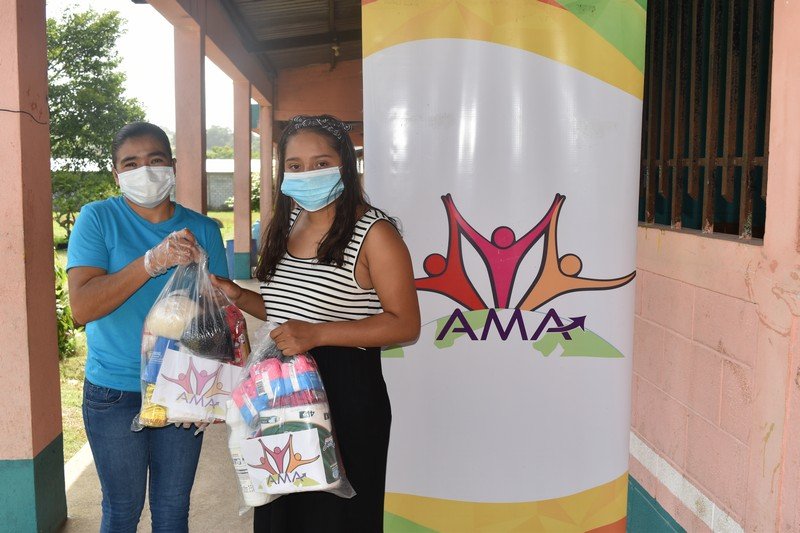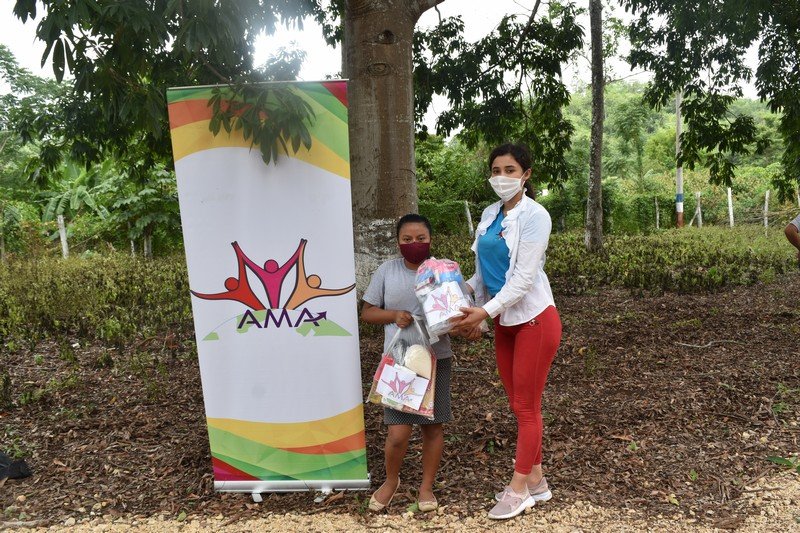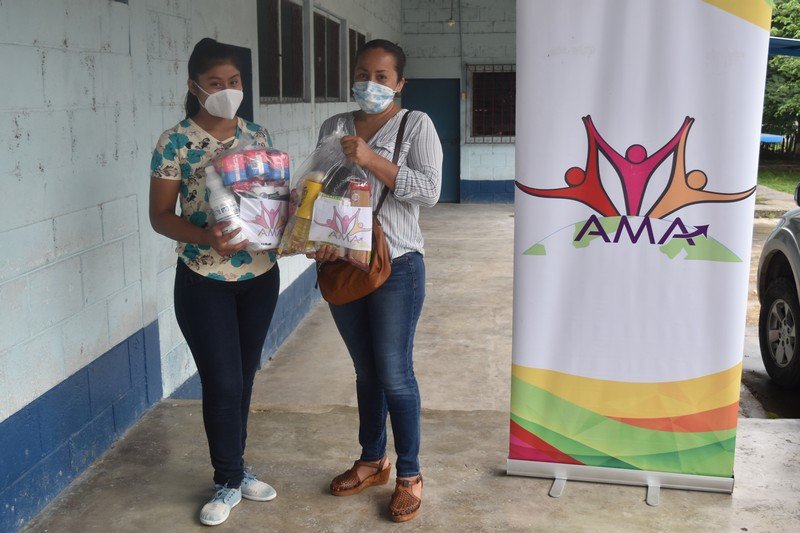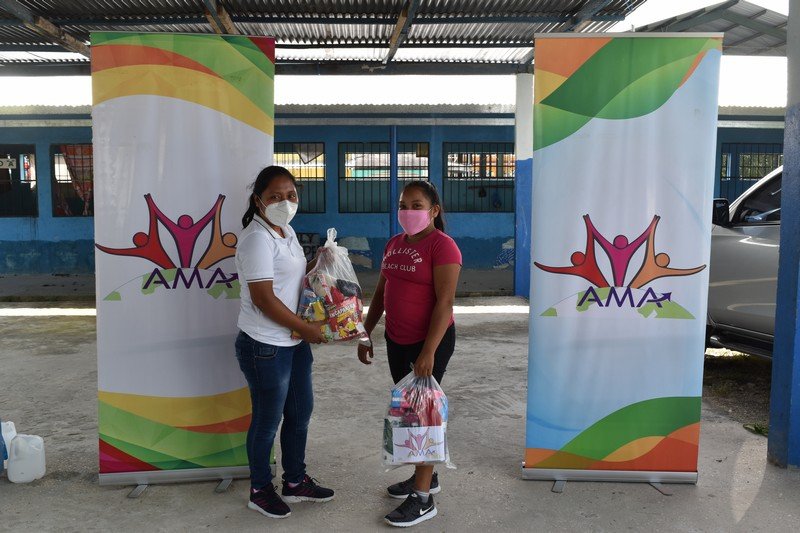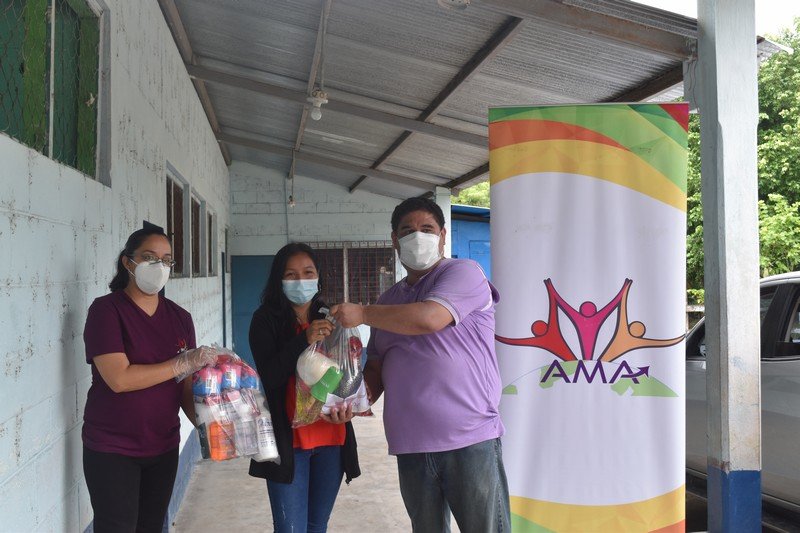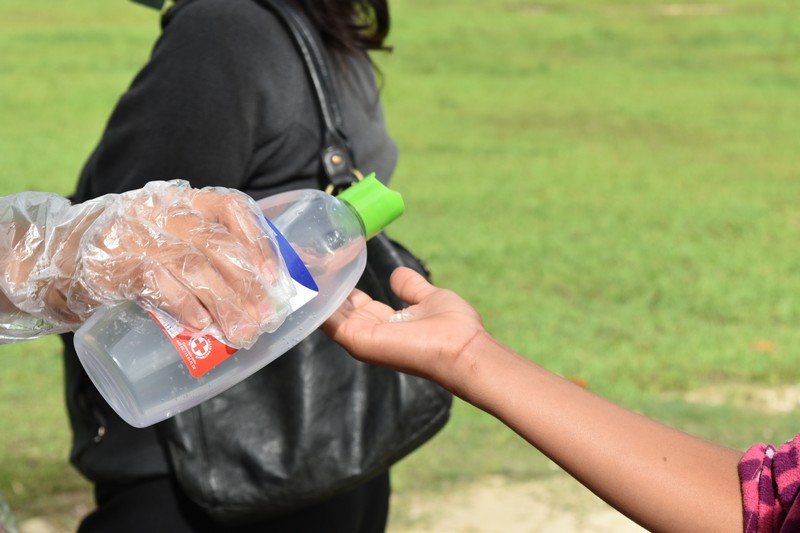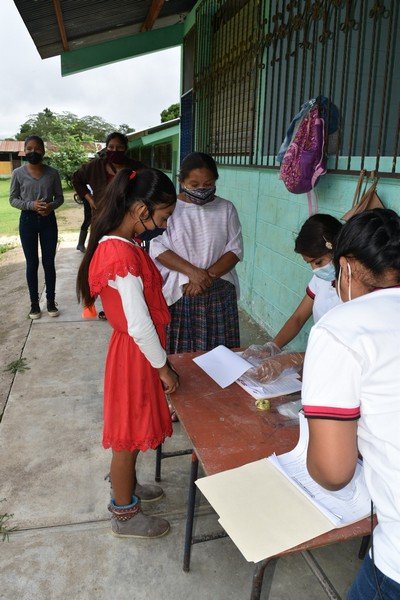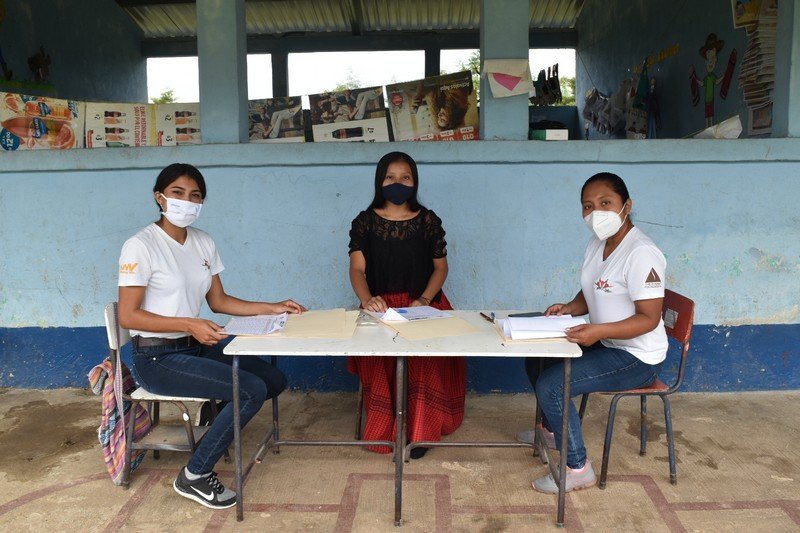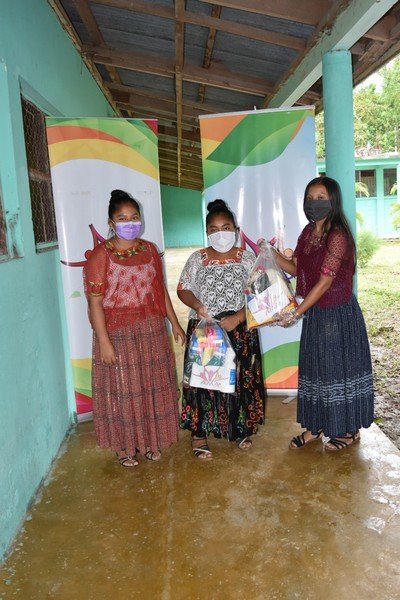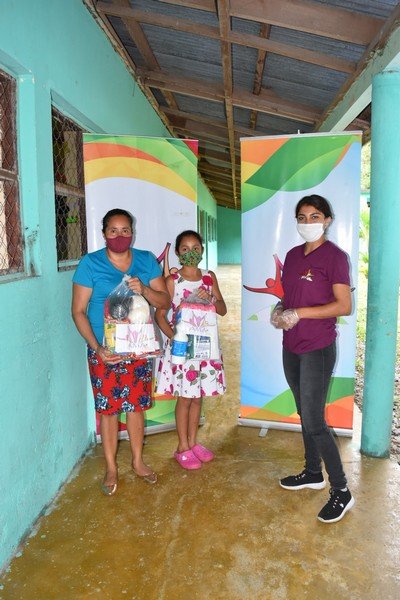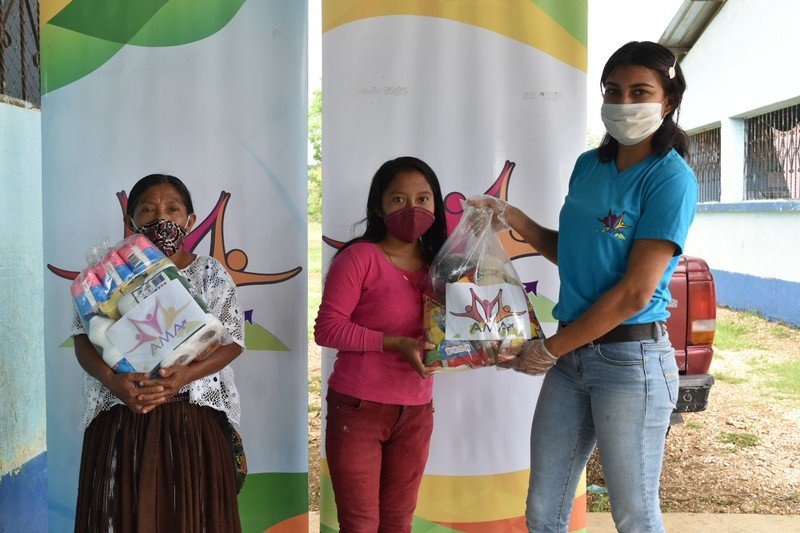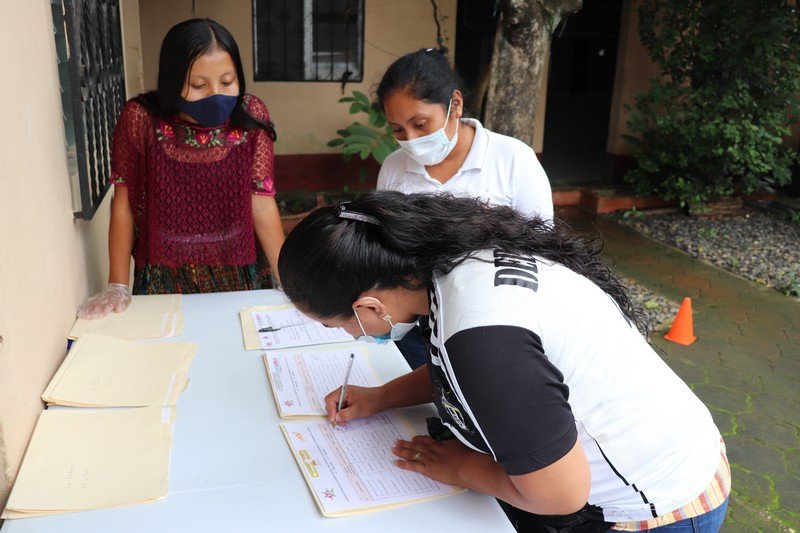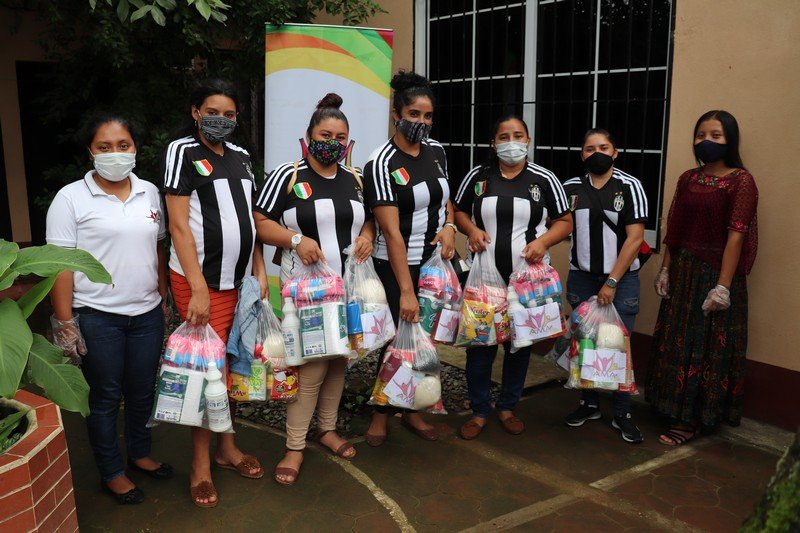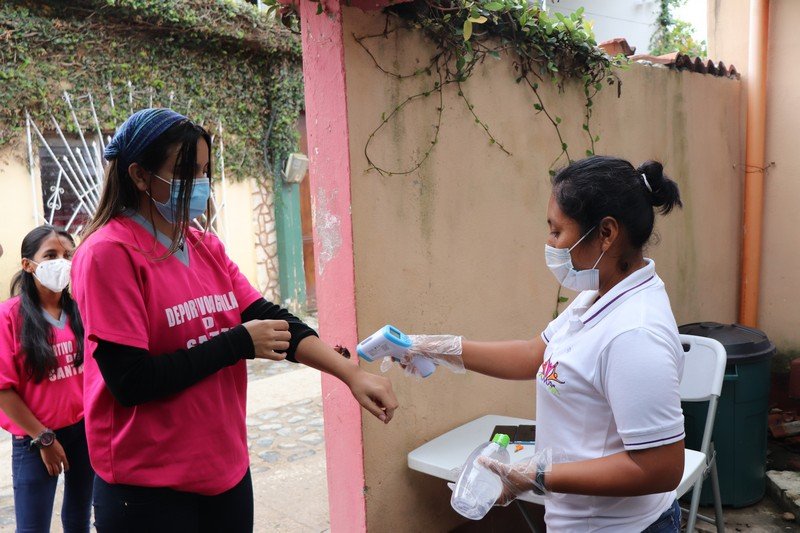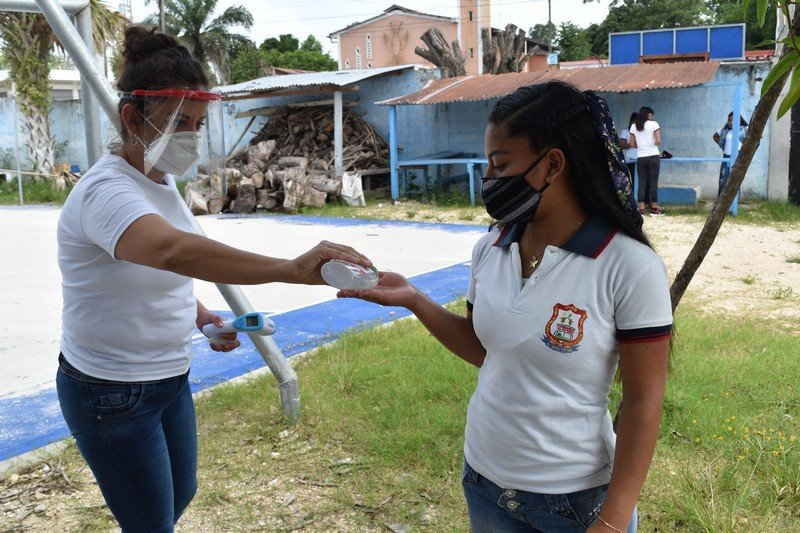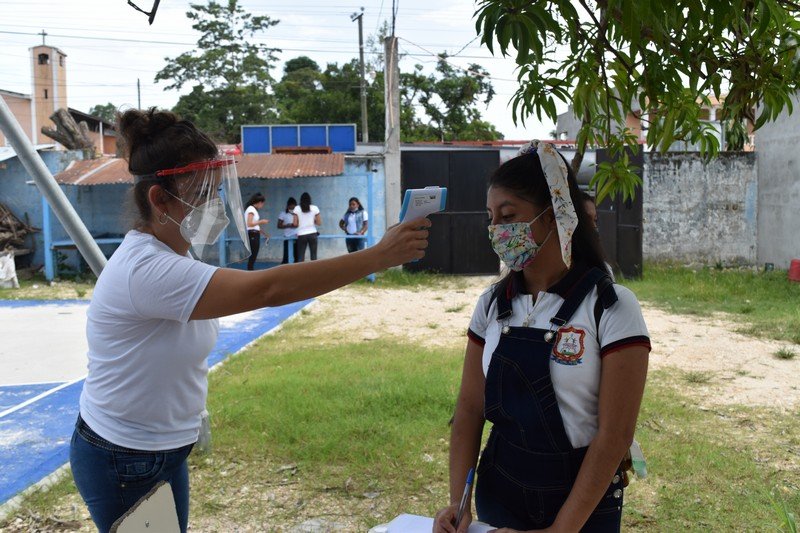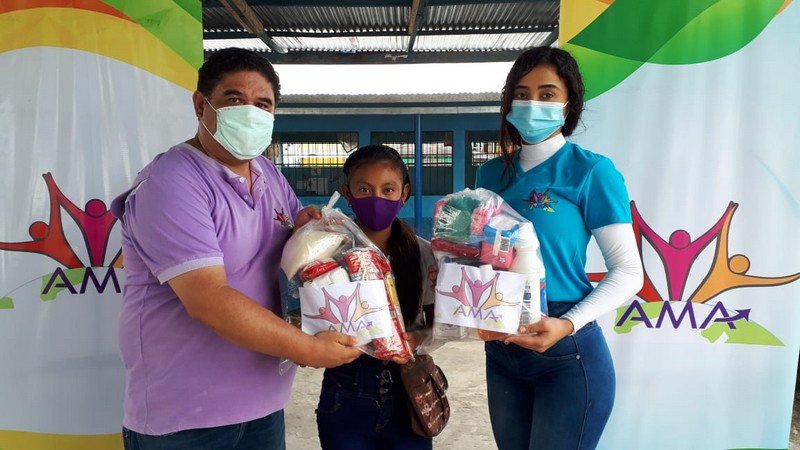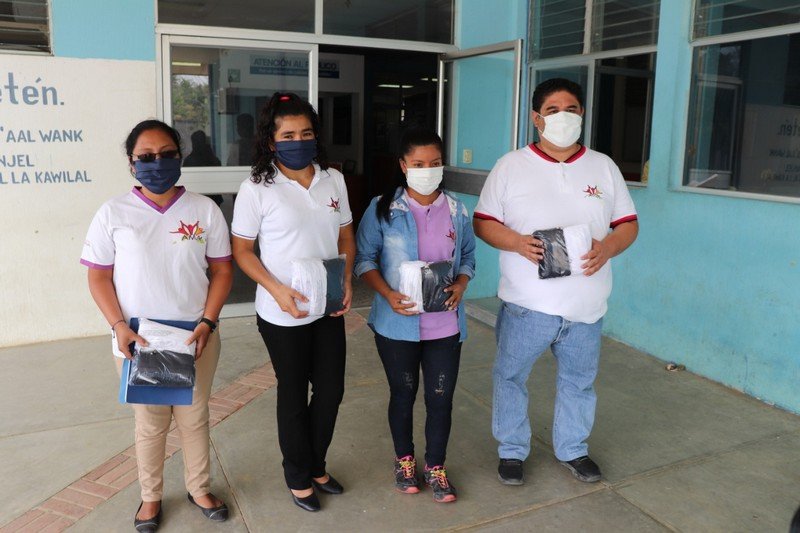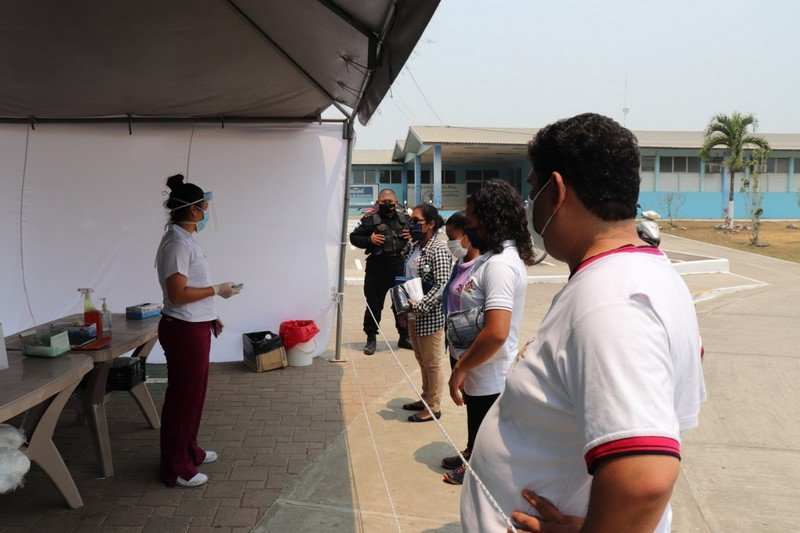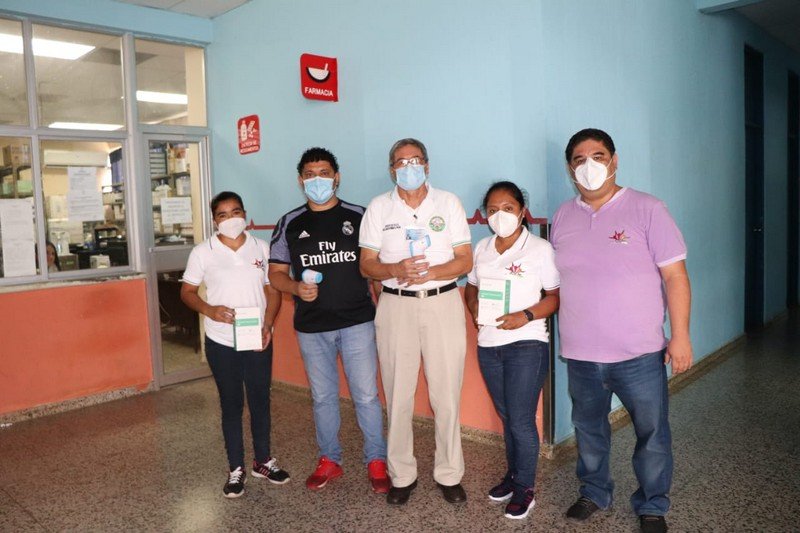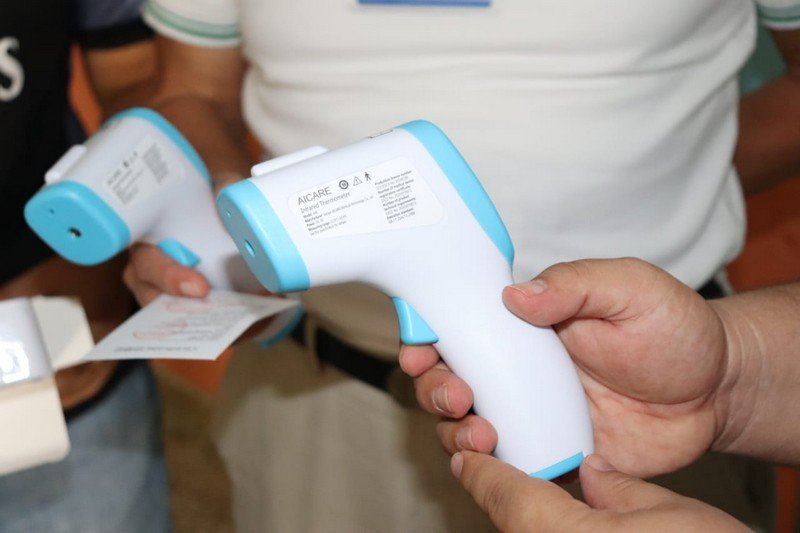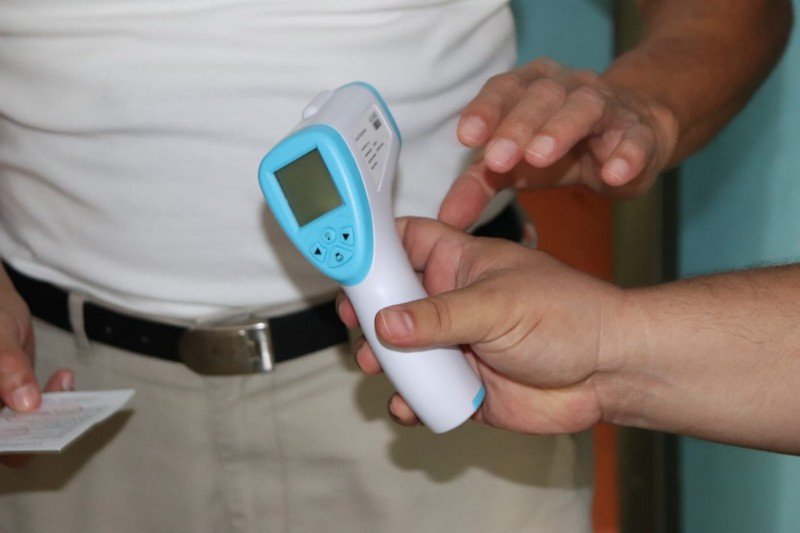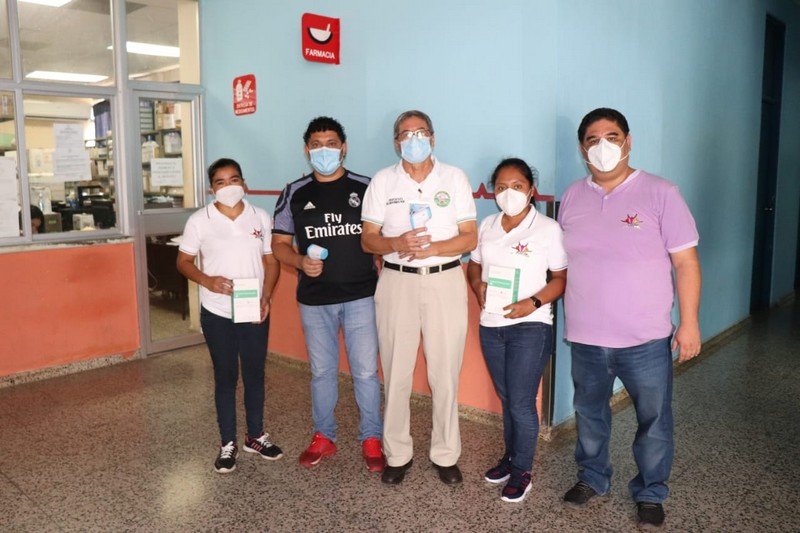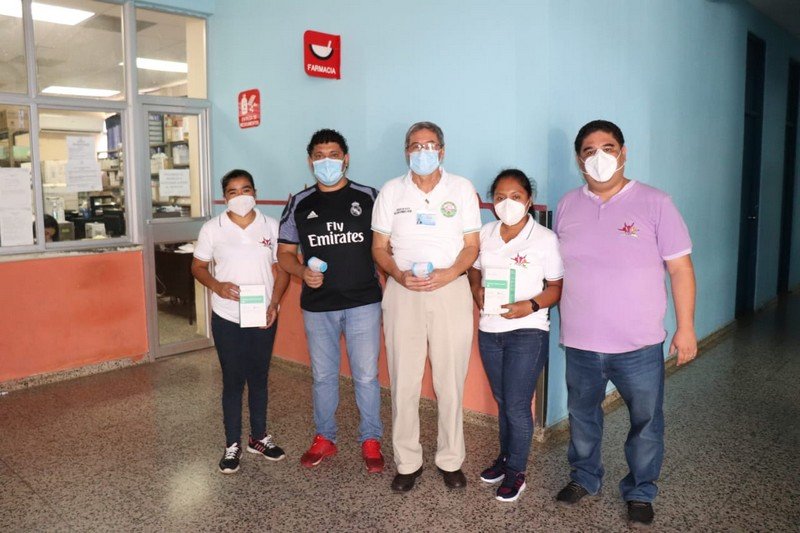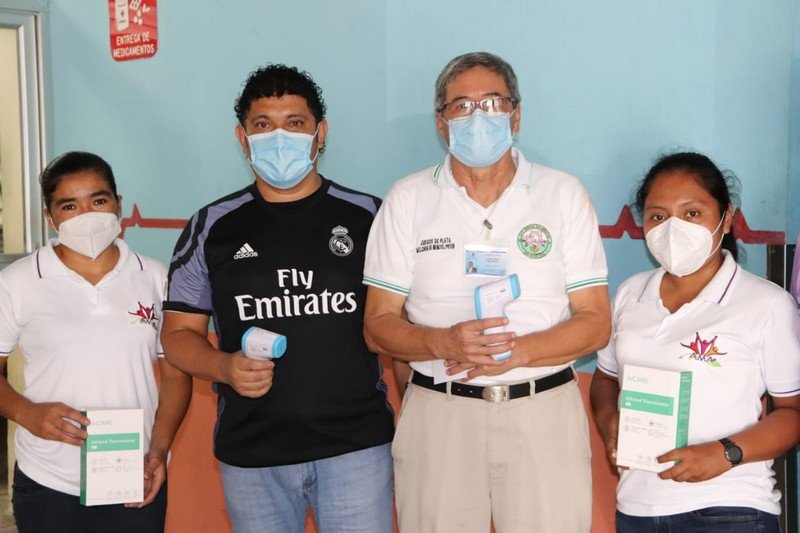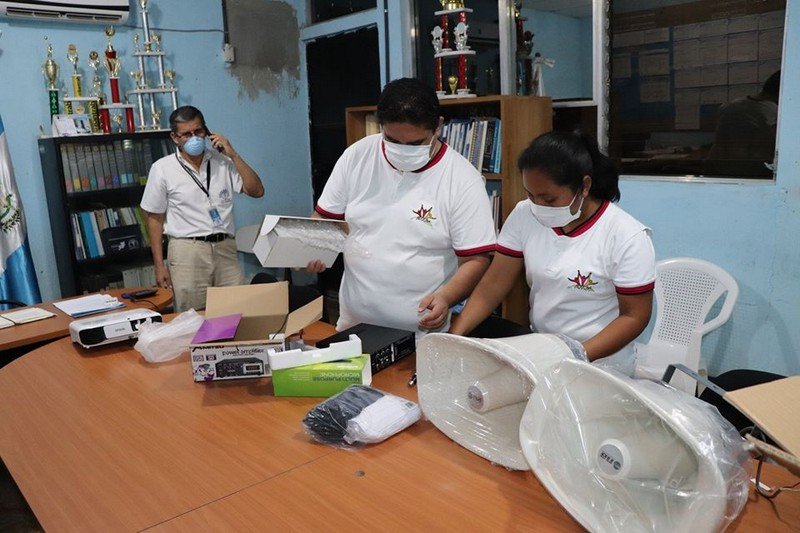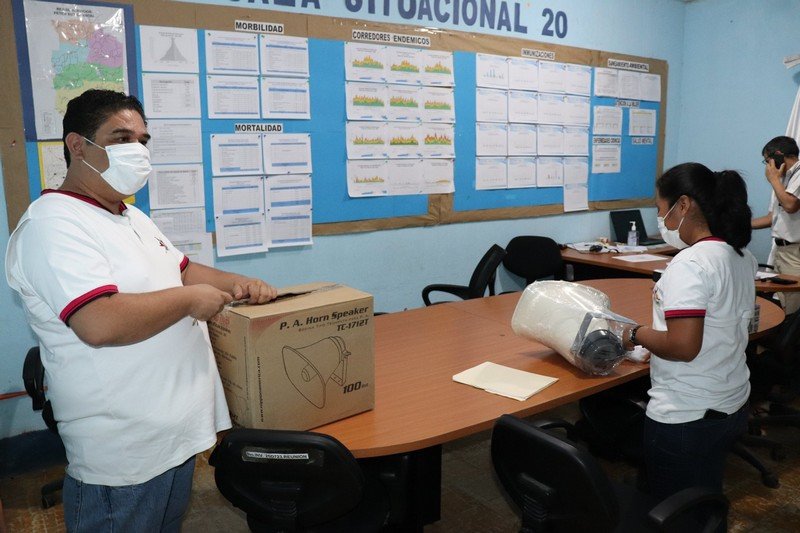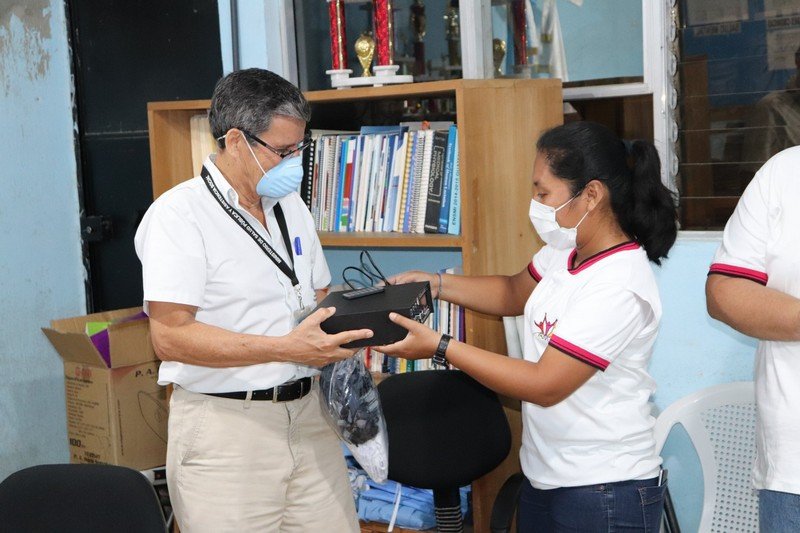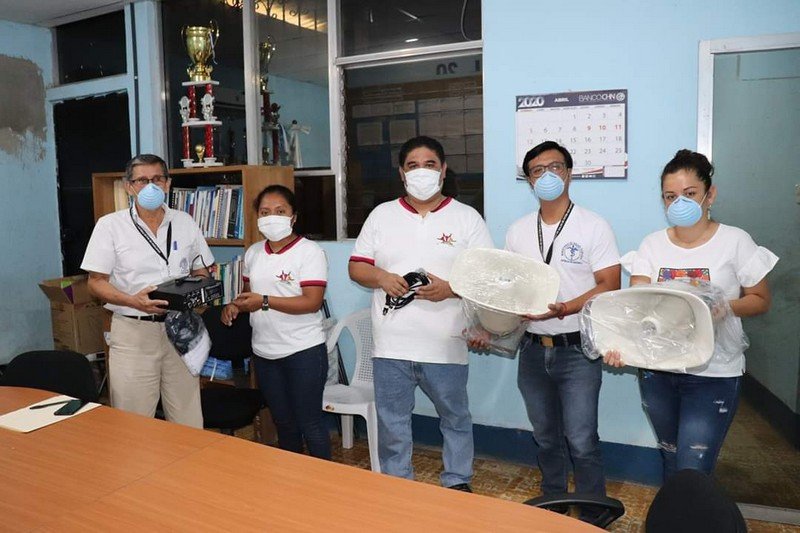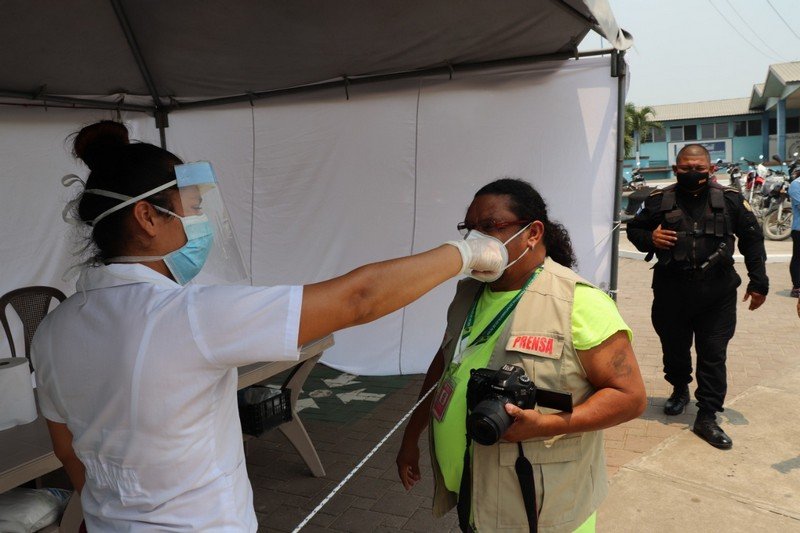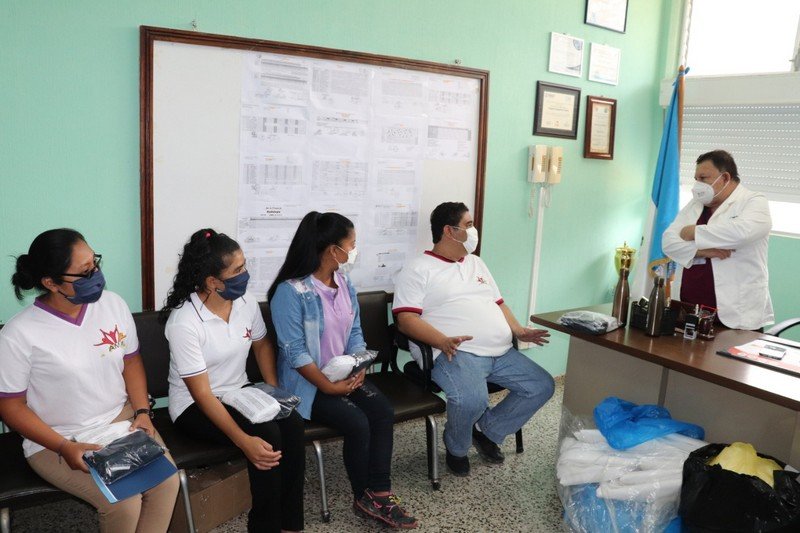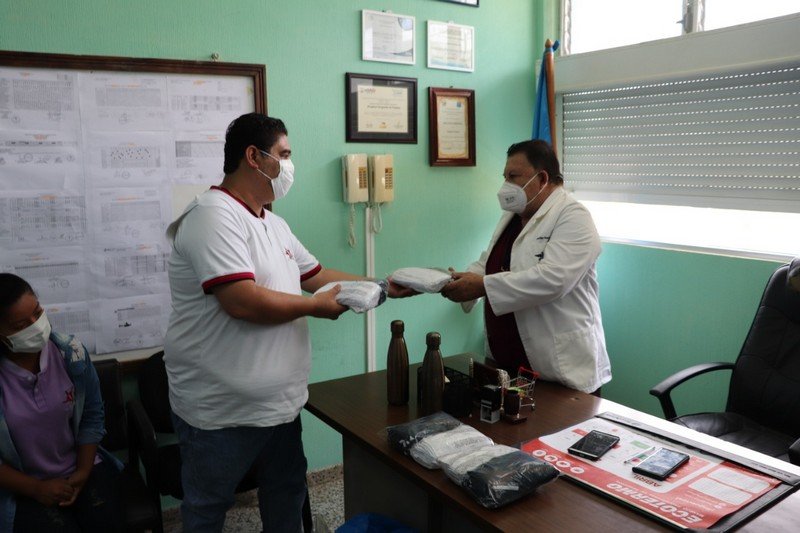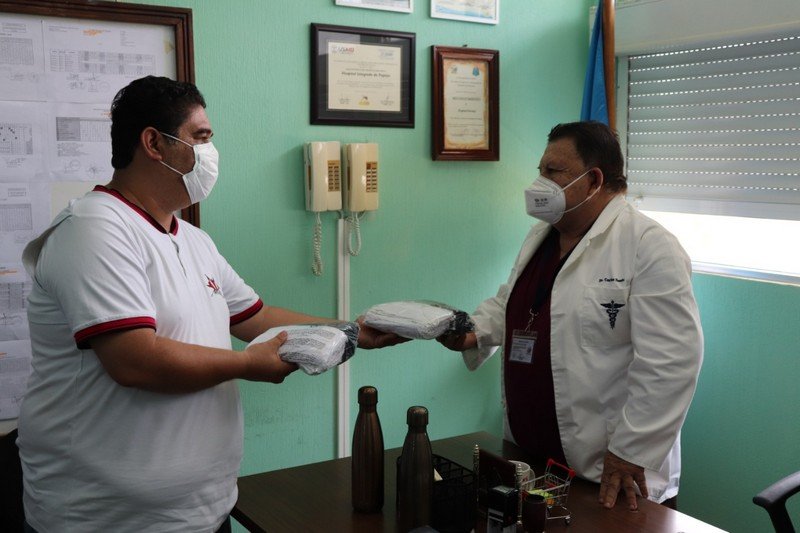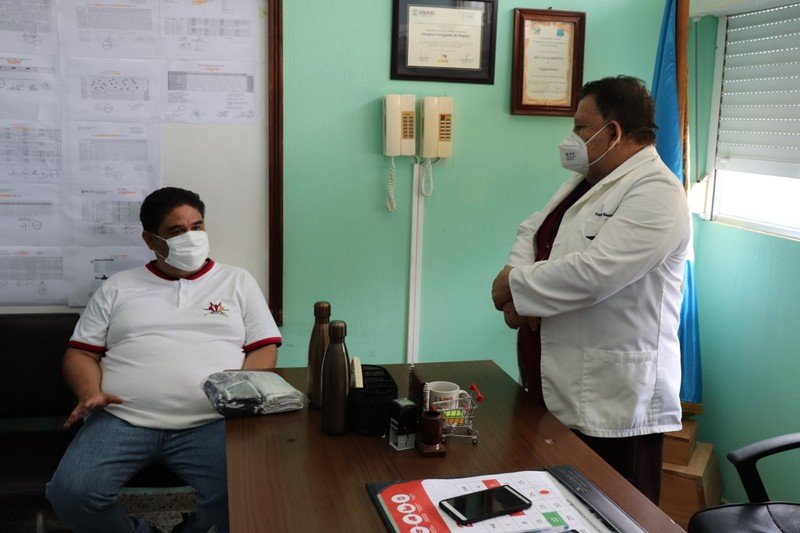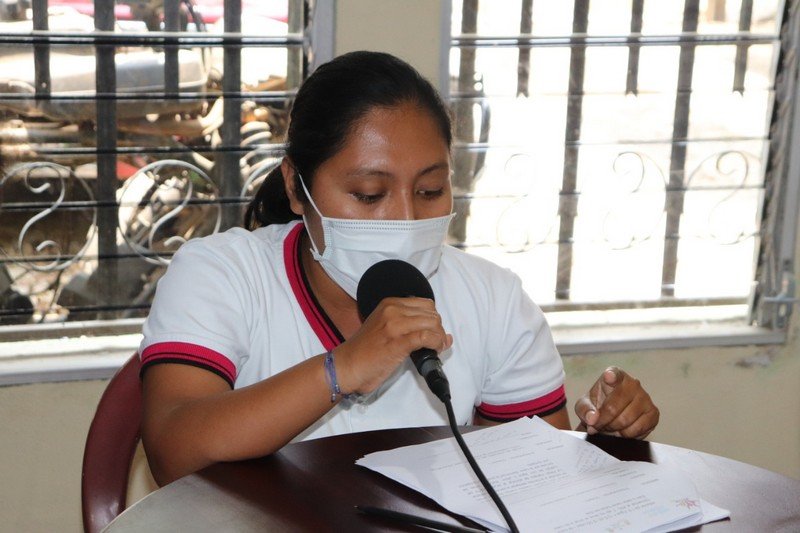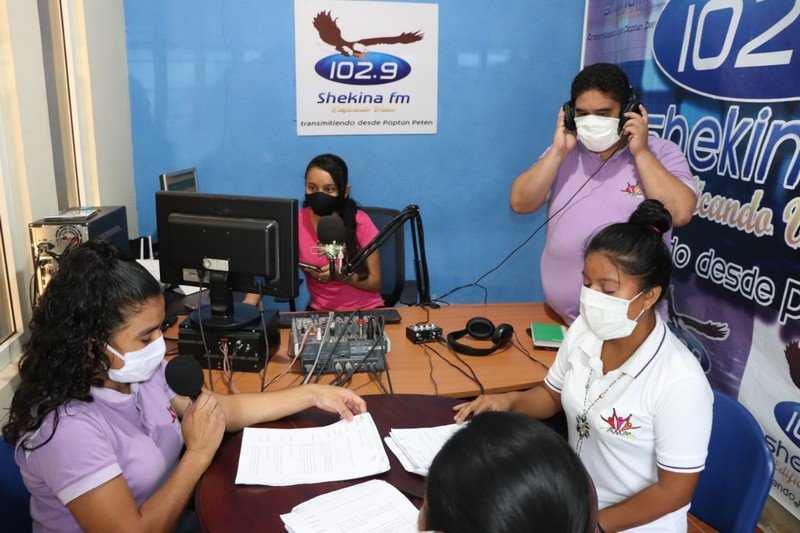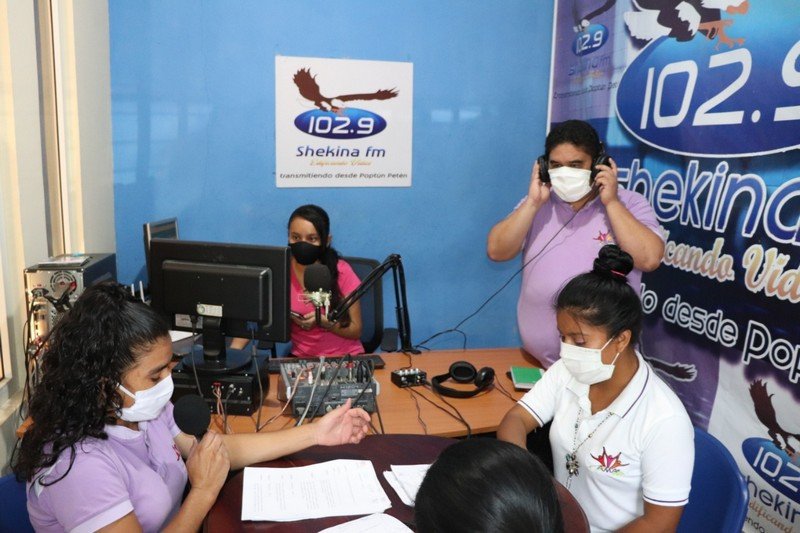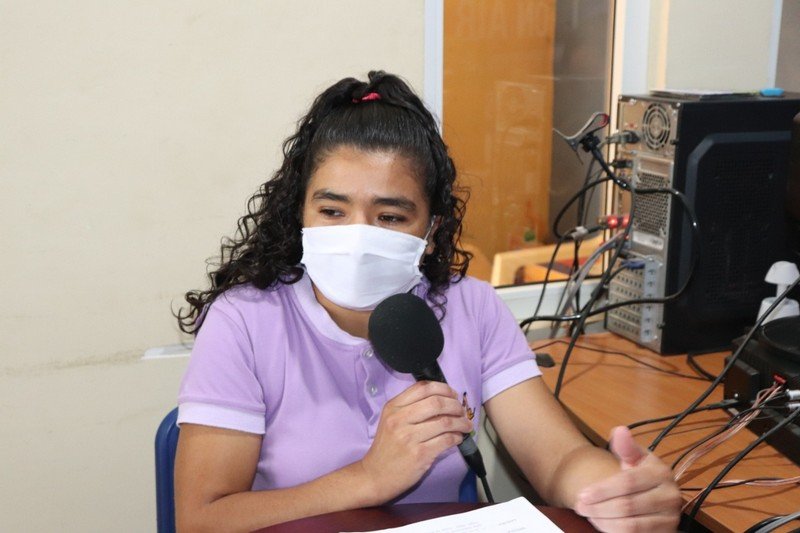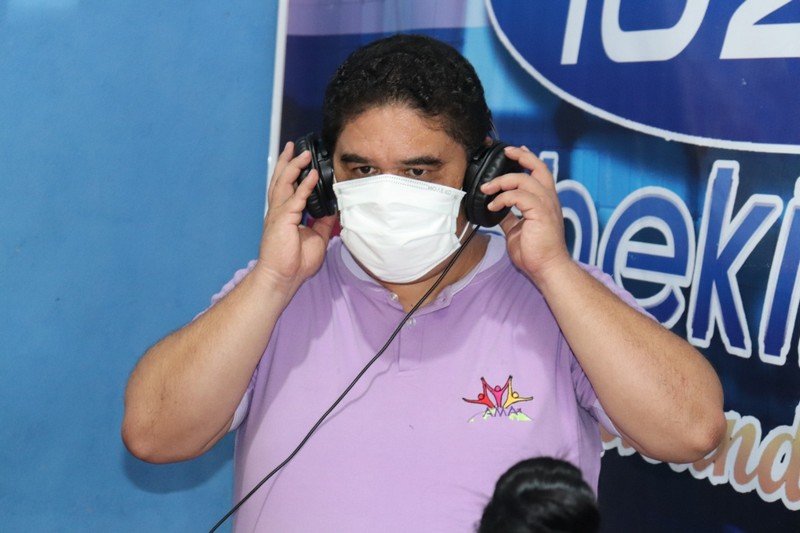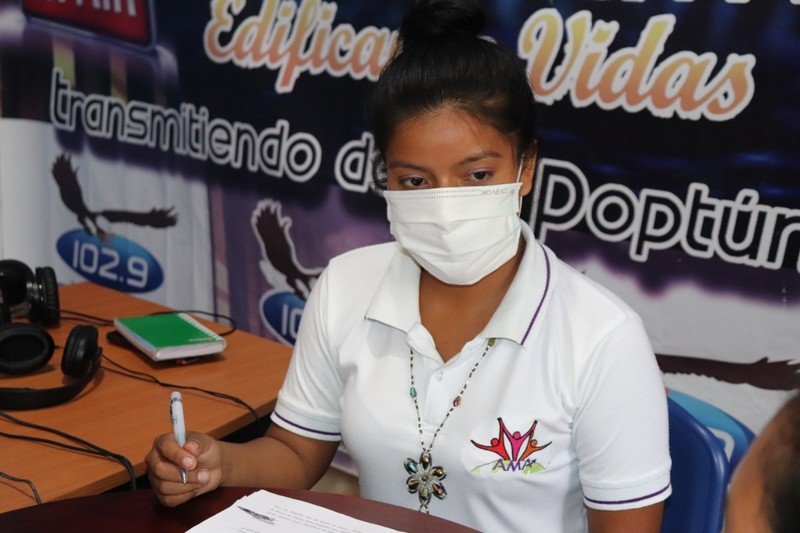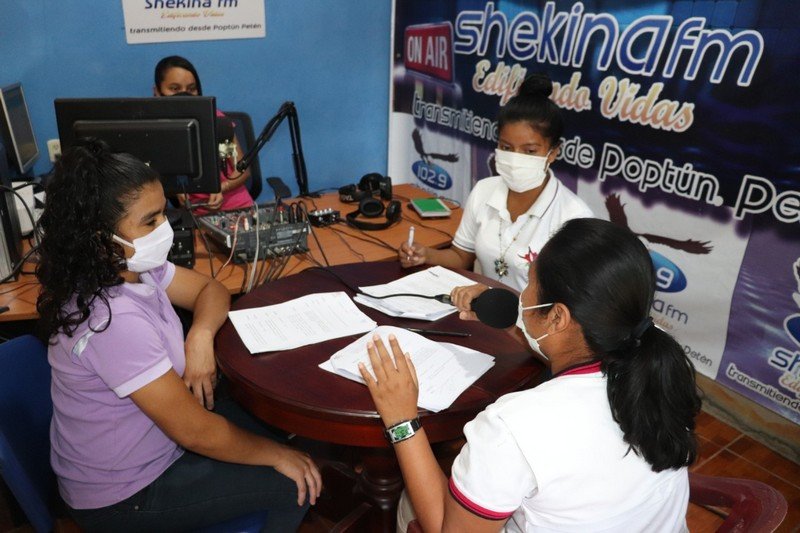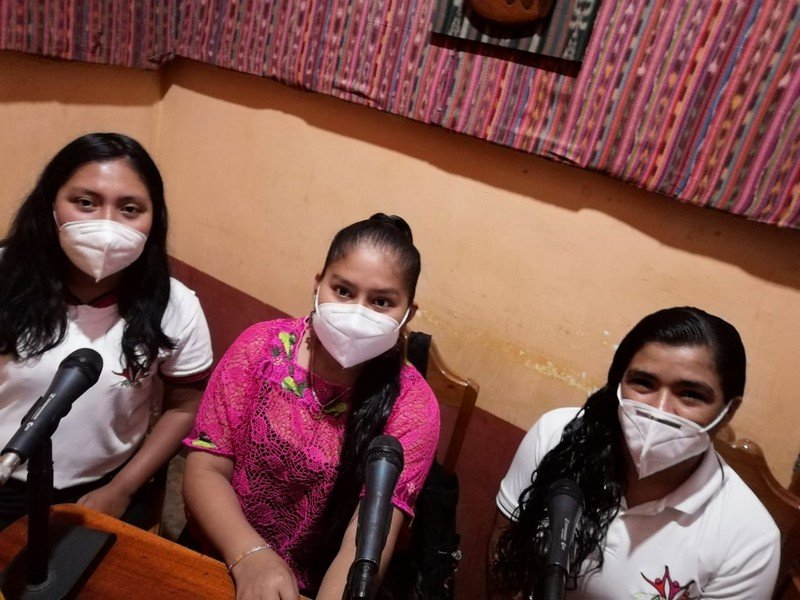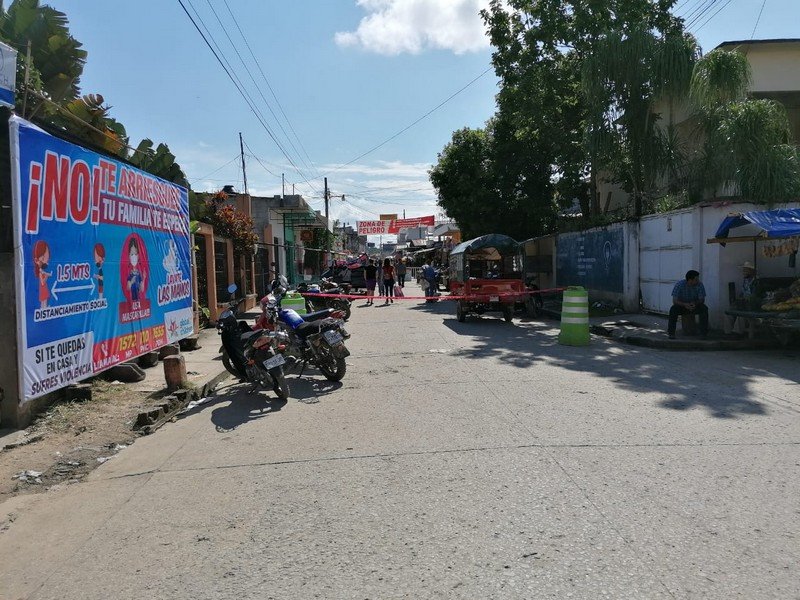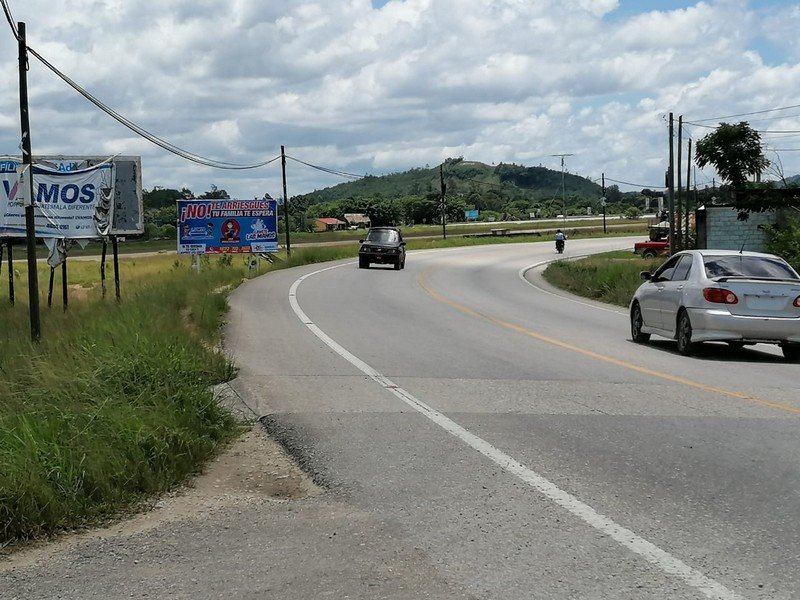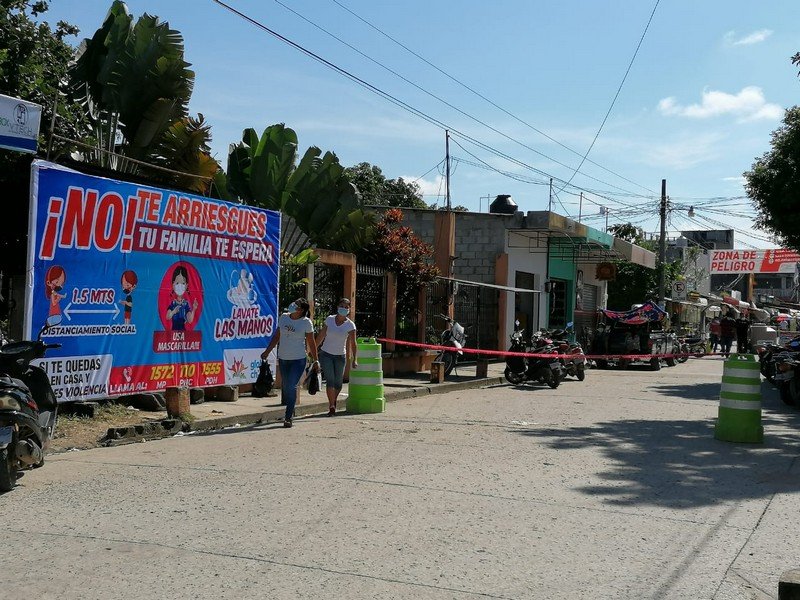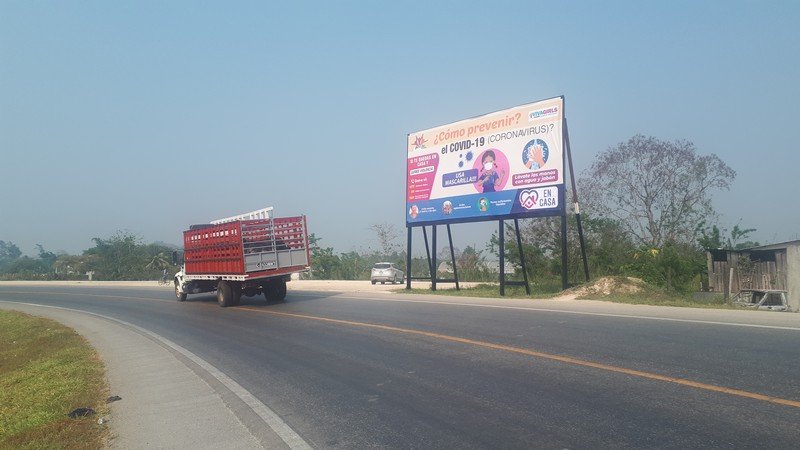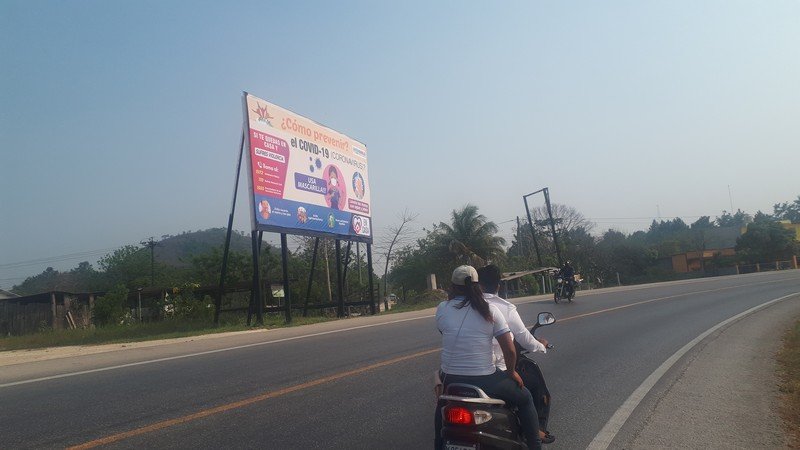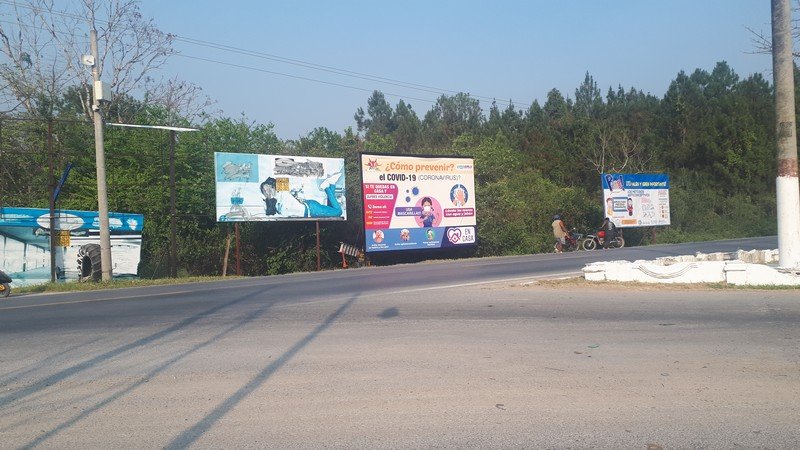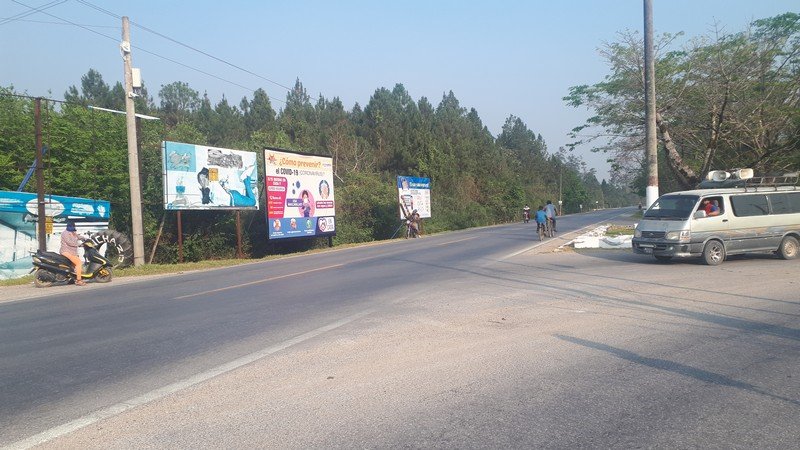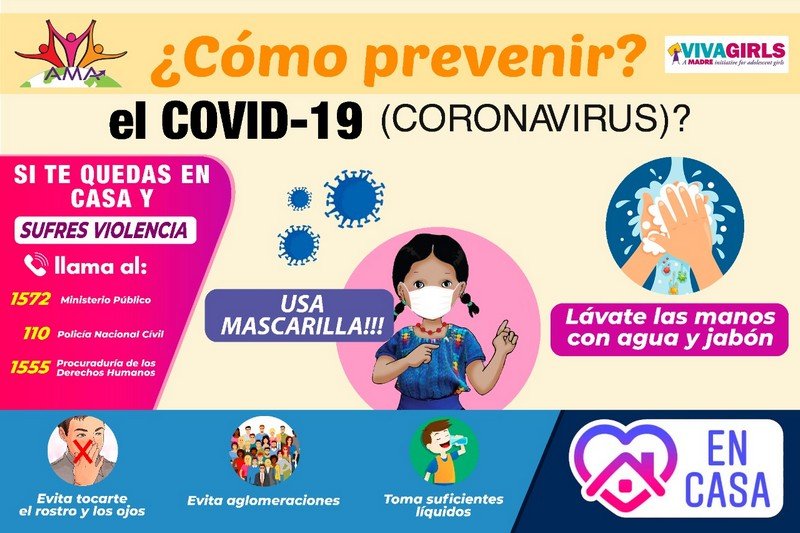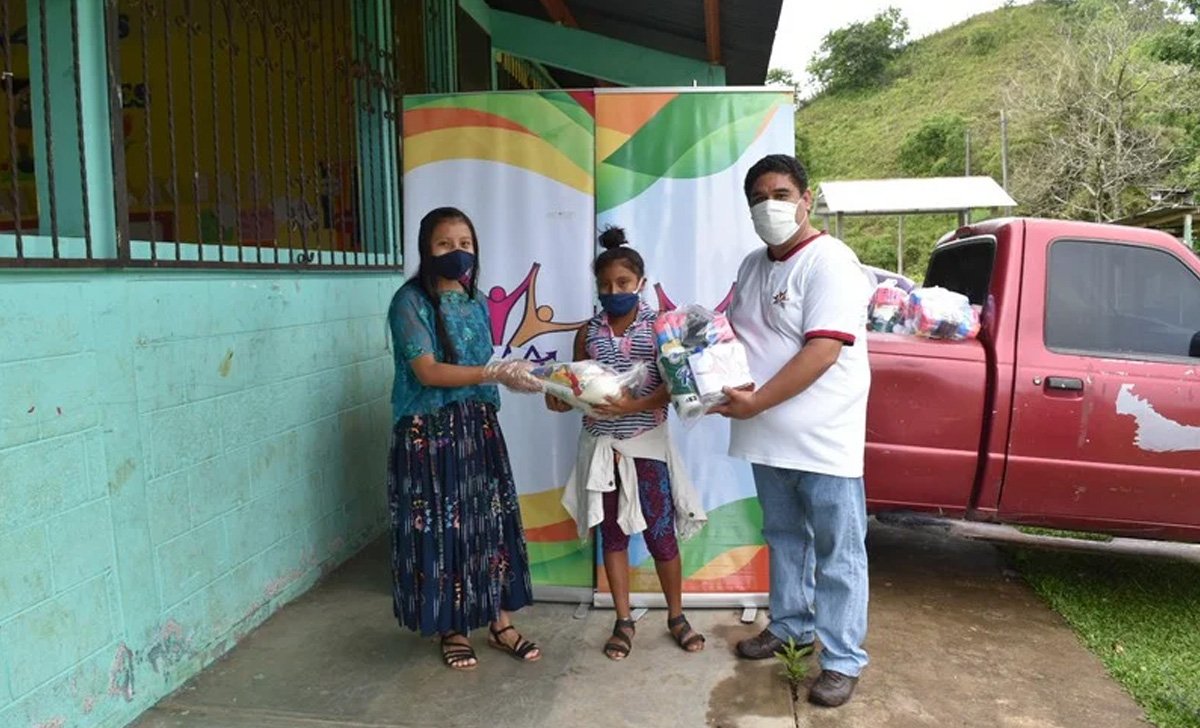
Start Date: March/2020
End date: September/2020
600 volunteer girls
Project Description:
AMA Association due to the stoppage of activities and curfew imposed by the Government of Guatemala, derived from the COVID-19 pandemic, had to suspend face-to-face work and the activities that required the presence of the 600 adolescent girls and young Maya Q'eqchí' and mestizo women in the year 2020 and the political advocacy activities.
Facing this new context meant a great challenge for AMA, because we had never worked remotely, neither in the office nor with the beneficiaries, and there was also uncertainty about the position that donors would take in relation to the implementation of the programs.
However, in this new reality, AMA Association valued the importance and the role it plays in the response to the different problems experienced by the beneficiaries, who not only added another problem to COVID-19 but also worsened the problems they were already experiencing.
In addition, the government's response is slow and not adjusted to the context of adolescent girls and young indigenous, rural, and marginal urban women, so AMA decided to act, first, using existing resources, second, to strengthen alliances, and third, to manage resources.
In this sense, we began to use our bilingual Spanish-Maya Q'eqchí' radio program "El ABC de la Sexualidad" (The ABC of Sexuality), to strengthen COVID-19's containment, prevention and mitigation measures since the program was already on the air.
Subsequently, agreements were reached with cooperating partners to redirect funds, which allowed us first to strengthen operational and administrative sustainability, second to seek new sources of funding, third to access emergency funds, and fourth to promote social assistance actions.
This sum of actions has allowed us to benefit 265,950 people in communities and marginalized urban Maya Q'eqchí and mestizo areas in five departments of Guatemala, through 59 broadcasts of the radio program, the placement of 13,000 bilingual Spanish-Maya Q'eqchí' illustrated educational posters, the installation of four billboards and the delivery of 600 food bags and 600 hygiene kits to 600 adolescent girls and young Maya Q'eqchí and mestizo women.
Además, por medio de una campaña de divulgación de medidas de prevención e higiene del COVID-19 en alianza con el medio de comunicación en línea Noti Sur y la Reina de la Feria Departamental de Petén, a través de capsulas audiovisuales transmitas en el segmento las 8 de las 8 de dicho medio de comunicación, el cual tiene 160,000 seguidores.
In addition, a loudspeaker, two infrared thermometers, and 350 masks were delivered to the Ministry of Public Health to intensify the COVID-19 and violence prevention campaign in Petén, Guatemala.
.
2020 Activities
Direct beneficiaries:
-
- 600 Maya Q'eqchí' and Mestizo adolescent girls and young women from communities and marginal urban areas of San Luis, Poptún, Dolores, El Chal and Santa Ana, Petén, participating in AMA Association programs and projects during 2020.
Indirect beneficiaries:
-
- 1800 people those who integrate families of adolescent girls and young Maya Q'eqchí' and mestizo women who participate in AMA's programs.
Direct beneficiaries:
- 190,000 people from rural communities and marginal urban areas in the departments of Petén, Izabal, Quiché, Alta Verapaz, and Baja Verapaz, Guatemala. The programs are also broadcast via Facebook Live on AMA's fan page.
Indirect beneficiaries:
-
- 65,000 people from rural communities and marginal urban areas in the 14 municipalities of the department of Petén.
Direct beneficiaries:
-
- 10,000 people from rural communities and marginal urban areas in the municipalities of San Luis, Poptún and Dolores, Petén.
Direct beneficiaries:
-
- 350 collaborators of the Public Health Area Directorate of Southeastern Petén and the District Hospital of Poptún, Petén, Guatemala.
Indirect beneficiaries:
-
- 10,000 people benefited from the delivery of infrared thermometers and loudspeaker equipment for the Public Health Area Directorate of Southeastern Petén and the District Hospital of Poptún, Petén, Guatemala.
2020 Project implementation
With the implementation of the response to COVID-19 in the department of Petén, Guatemala, COVID-19 containment, prevention, and mitigation measures were strengthened. In addition, food security, menstrual hygiene kits, prevention of domestic and sexual violence against adolescent girls and young women in five departments of Guatemala were improved.
To achieve the objective, the following activities were implemented:
A1. Delivery of basic living expenses to 600 families of Maya Q’eqchí' and Mestizo adolescent girls participating in AMA Association programs and projects.
In order to strengthen food and nutritional security, menstrual hygiene, and COVID-19 prevention, delivery of basic living expenses and hygiene kits were delivered to 600 families of Maya Q'eqchí' and Mestiza adolescent girls participating in the programs and projects of AMA Association.
Among the adolescent girls and young Maya Q'eqchí' and Mestizo women, there were some who live with physical disabilities, survivors of violence, and in the case of the girls from Educational Family Center No. 517, Nuevo Horizonte Cooperative, Santa Ana, Petén, their families are returnees, since they took refuge in Mexico during the internal armed conflict in Guatemala.
During the deliveries, it was necessary to take the aid to the homes of some adolescent girls and young women who study in the educational centers of the Ixobel neighborhood, Aldea Machaquila, Poptún, Nuevo El Carmen Dolores neighborhood, and Aldea El Ocote, Santa Ana, Petén. This was due to the fact that the participants and their families were under home quarantine because they or a family member were infected or suspected of being infected with COVID-19.
During the deliveries, safety and hygiene protocols were put into practice, such as the proper use of masks, physical distancing, temperature taking, and the application of alcohol gel, in order to safeguard the health of the participants and AMA employees.
To ensure the presence of the adolescent girls and young Maya Q'eqchí' and Mestiza women and their families, we coordinated with the Departmental Directorate of Education of Petén -DIDEDUC-, the Municipal Coordinating Offices of the Education Districts, and the Directorates of the participating Educational Centers, who supported with the convocations, which guaranteed the presence of the participants.
It is worth mentioning that during the deliveries many adolescent girls and mothers who do not participate in AMA programs approached to ask for help, which unfortunately was not possible, this is due to the adverse situations they are facing and because government social programs are not reaching those most in need.
This activity was developed thanks to the financial support of MADRE's VIVA Girls Initiative, Women Win, and Summit Foundation.
A2. 49 broadcasts of the bilingual Spanish-Maya Q'eqchí radio program "El ABC de la Sexualidad" (The ABC of Sexuality).
The programs were broadcast as an open forum where adolescent girls, youth, and families, in general, had access to timely information on ways to contain COVID-19 (prevention, mitigation, and hygiene), the importance of adolescent girls returning to school, violence prevention, the importance of access to sexual and reproductive health in times of pandemic, and government regulations related to the pandemic.
The programs were broadcast by the community radio station U'tan Kaj 106.9 FM, which belongs to the Apostolic Vicariate of Petén, and radio station Shekina 102.9 FM, which is an evangelical Christian radio station.
Radio U'tan Kaj reports an audience of 180,000 people, mostly families from rural Maya Q'eqchí and Maya Mopán communities in the departments of Petén, Izabal, Alta Verapaz, Baja Verapaz, Quiche, and Huehuetenango.
Radio Shekina reports an evangelical Christian audience of approximately 10,000 people, mostly from urban areas in the departments of Petén, Izabal, and Alta Verapaz. This is according to information provided by the administration of both radio stations.
The 49 radio programs were produced with the financial support of the Global Fund for Children (GFC) and the Latin American and Caribbean Women's Health Network (Red de Salud de las Mujeres Latinoamérica y del Caribe -RSMLAC).
A3. Radio Spot Production and Broadcasting
AMA Association, with the support of its partners, is broadcasting during the regular programming of U'tan Kaj and Shekina radio stations, educational spots on COVID-19 prevention and hygiene measures.
In addition, the spots focus on the importance of preventing violence, exercising human rights and access to sexual and reproductive health for women in times of pandemic.
The spots were produced by the speakers of AMA Association in bilingual Spanish-Maya Q'eqchí, taking into account that in Southern Petén, Guatemala, adolescent girls and Mestizo and Mayan women converge.
A4. Advertising of bilingual information material on COVID-19.
A total of 13,000 posters with bilingual Spanish-Maya Q'eqchí' illustrated information on COVID-19 prevention and hygiene norms were placed in popular places such as schools, neighborhood stores, refreshment stores, tortilla shops, among others.
The posters were placed in the 14 municipalities of the department of Petén. In order to place the posters, a strategic alliance was formed with the Public Health Area Directorates of South East Petén, North Petén, and southwest Petén, Municipal Women's Offices, the Ministry of Agriculture, and students from the Faculty of Humanities of the University of San Carlos de Guatemala, Poptún area, Petén, who together with AMA's collaborators carried out the poster placement sweeps, which allowed reaching the most remote and hard-to-reach communities.
Four billboards with information on violence prevention in times of pandemic and COVID-19 hygiene measures were placed in Poptún, Petén, because the municipality of Poptún is the center of convergence of Southern Petén.
The billboards contained information on the importance of preventing sexual and domestic violence and telephone numbers for reporting, as the rate of violence described above has increased during the pandemic.
A5. Delivery of supplies and equipment to the Ministry of Public Health and Social Assistance.
As part of the response to COVID-19 and the strengthening of the public health system, due to its precarious conditions and the collapse of the health crisis, the following actions were carried out:
- Delivery of loudspeaker equipment (loudspeaker, microphone, amplifier) to the Department of Communication for Social and Behavioral Change of the Public Health Area Directorate of the South East Area of Petén, in order to strengthen the dissemination of hygiene and prevention measures of COVID-19 in rural communities and marginal urban areas of the South Area of Petén, Guatemala, in alliance with Global Fund for Women.
- Delivery of two infrared thermometers to the Sexual Violence Clinic of the District Hospital of Poptún, Petén, which are being used by medical personnel during the care of women victims of sexual violence in southern Petén, Guatemala, in partnership with Global Fund For Women.
- Delivery of 350 washable and reusable masks (mouth masks), 200 to the District Hospital of Poptún, Petén, and 150 to the Public Health Area Directorate of the Southeast area of Petén, to be used by the employees of these facilities, in alliance with Global Fund For Women.
The supplies and equipment delivered, allow health collaborators to have daily protection for the prevention of COVID-19, which strengthens the medical care that adolescent girls, young women and their families require, as well as strengthens awareness in the most vulnerable communities and marginal urban areas, because they do not have access to radio, television or internet.
- 265,950 people in Maya Q'eqchi and Mestizo communities and marginal urban areas in five departments of Guatemala received timely information on COVID-19 prevention and hygiene norms.
- 600 adolescent girls and young Maya Q'eqchí and Mestizo women from rural communities and marginal urban areas of five municipalities in the department of Petén, Guatemala, strengthened food security, nutrition, menstrual hygiene, and COVID-19 prevention.
- 350 employees of the Ministry of Public Health and Social Assistance of Petén have the appropriate accessories to prevent COVID-19.
56,987 people infected with COVID-19 in Guatemala, of which 2,222 have died. Of these data, 2,756 correspond to children and adolescents between 0 and 17 years of age infected with COVID-19 and 24 children and adolescents died (10 females-14 males).
It is very important to mention that in the case of children and adolescents, both deaths and infections mainly affect early childhood and the 13-17 age group is in second place with 903 cases of COVID-19.
Another important piece of information to mention is the rate of infected people by gender, since in the range of 18 years and older there is a 38% of female infections, while in the range of 0 to 17 years there is a 47.7% female and 49.9% male, almost a parity, 2.3% with no data. According to the Institutional Coordinator for the Promotion of Children's Rights – (Coordinadora Institucional de Promoción por los Derechos de la Niñez – CIPRODENI)-.
The National Observatory of Sexual and Reproductive Health -OSAR-, reports that in Guatemala from January to May 2020, 44,901 pregnancies were registered in girls and adolescents from 10 to 19 years of age, of which 1,962 correspond to girls from 10 to 14 years of age, which are classified as crimes of sexual violence.
In the department of Petén, OSAR recorded 3,338 pregnancies in girls and adolescents between 10 and 19 years of age for the same period, 207 of which correspond to girls between 10 and 14 years of age, which places Petén in fourth place at the national level.
Girls and adolescents are still in confinement. Many are exposed daily to multiple sexual violations in their homes. However, INACIF conducted fewer forensic examinations for sexual crimes during the period from January to July 2020 (2,352) compared to the same period in 2019 (3,116).
The donor who funded this project
